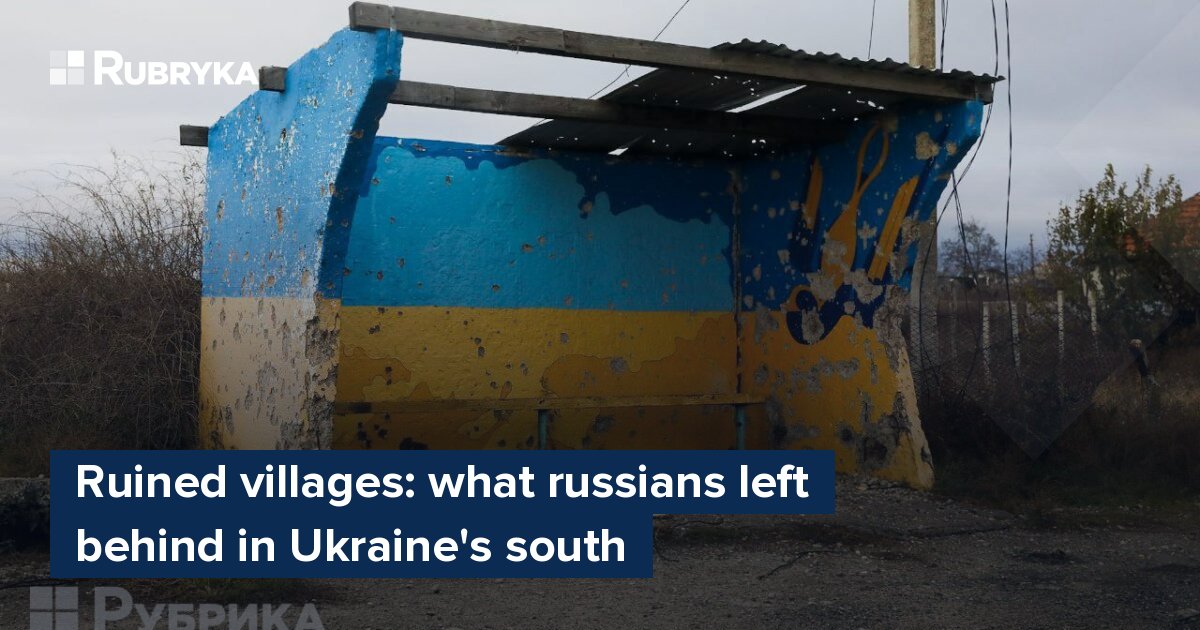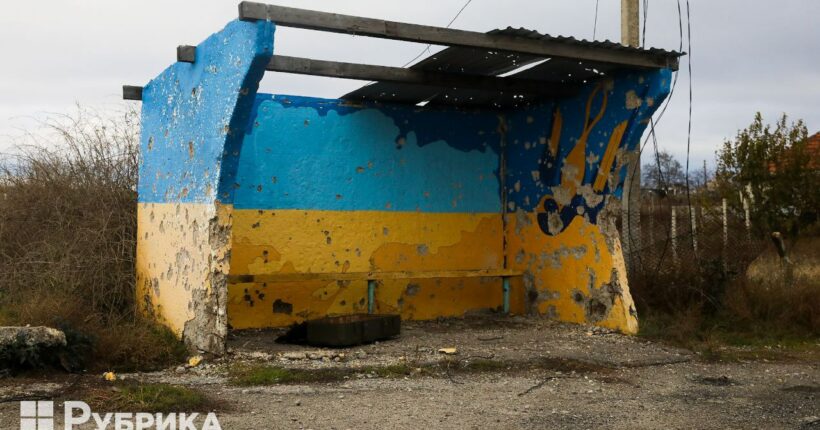
"Everyone was afraid that shell would fly into their house"
Shyroke, Mykolaiv region
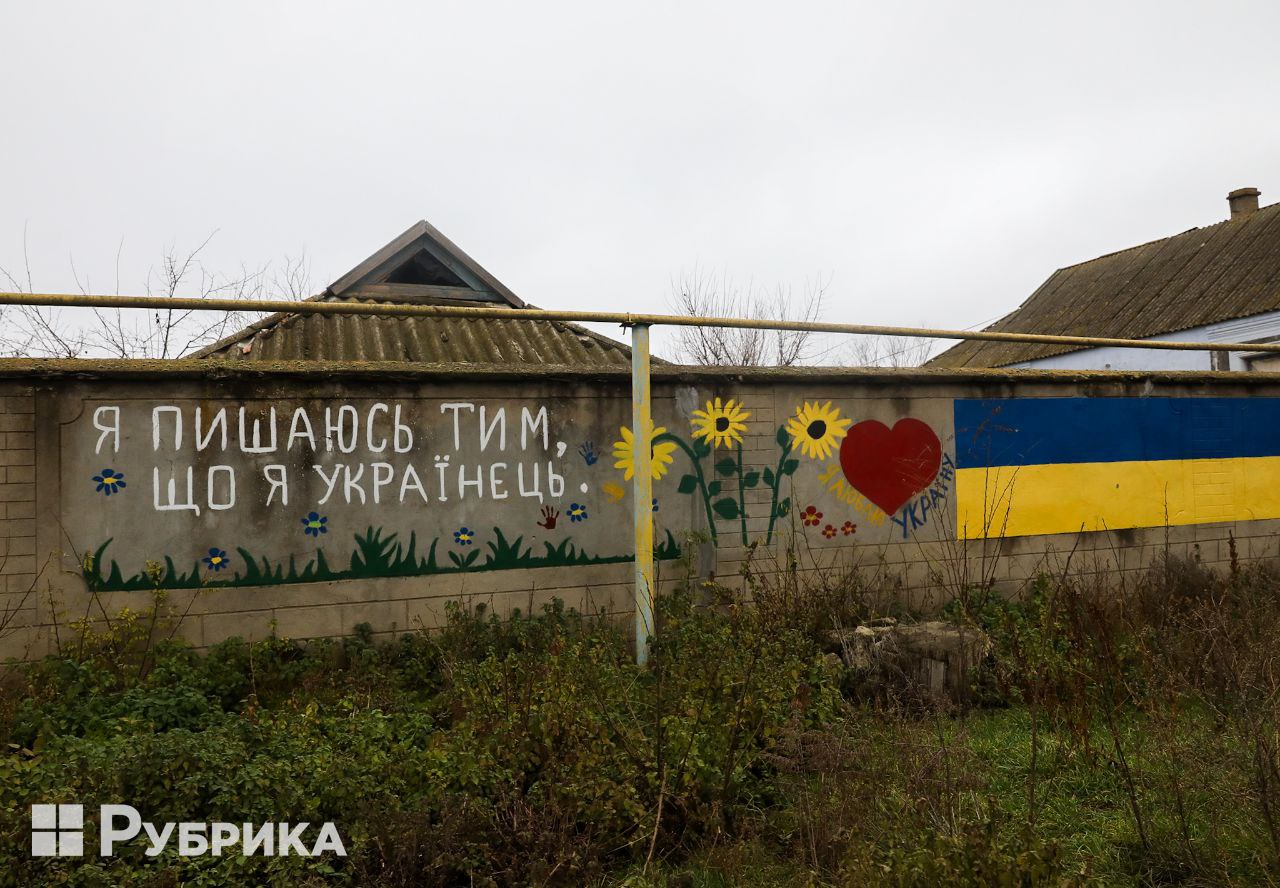
Shyroke is a village in the Bashtanka district of the Mykolaiv region. About 800 residents lived here before the start of the full-scale war. At the beginning of the full-scale invasion, the village was occupied for a while, but Ukrainian troops quickly regained control. Since March, the russians have continuously bombarded Shyroke with all possible weapons and involved aviation. Currently, about 95% of private houses in the village have been damaged or destroyed, and a school, a kindergarten, a village council, and industrial enterprises have been destroyed entirely.
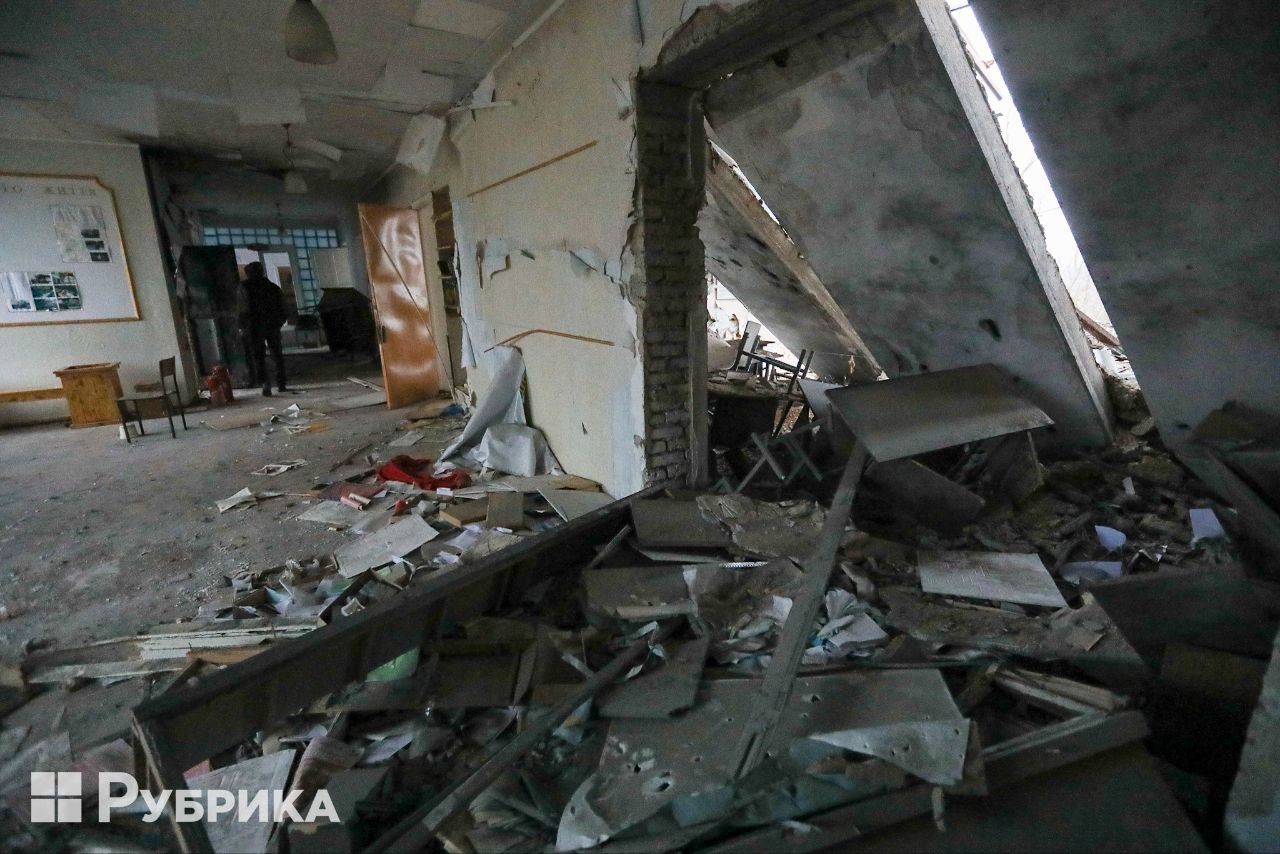
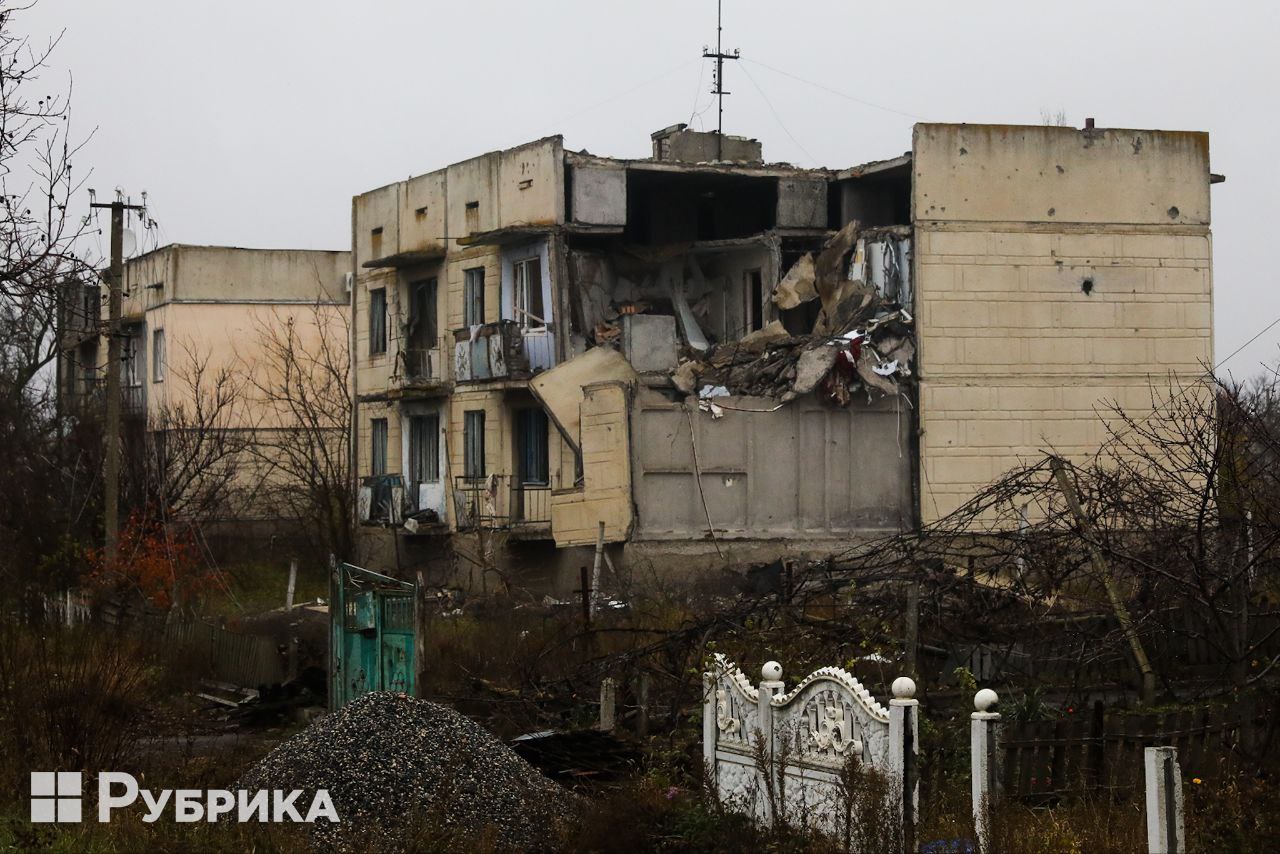
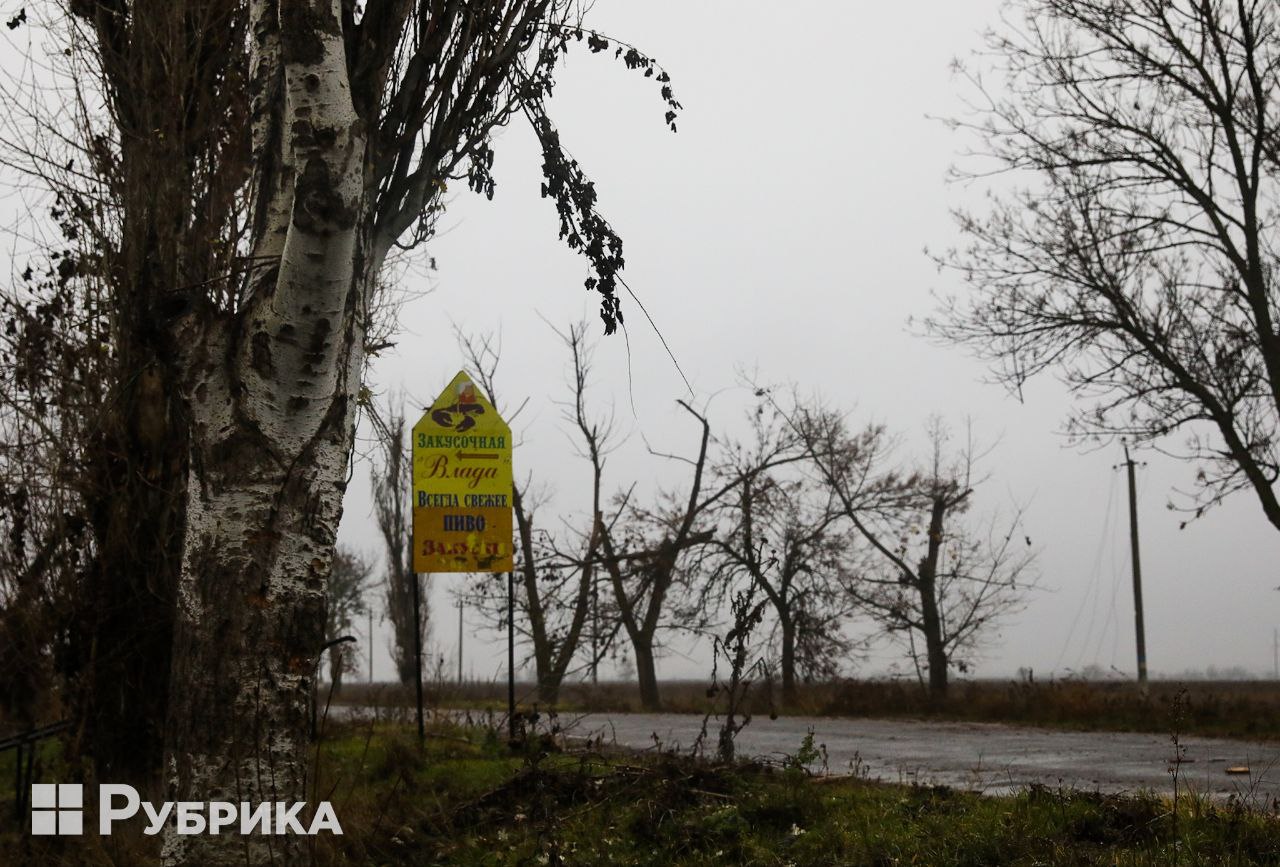
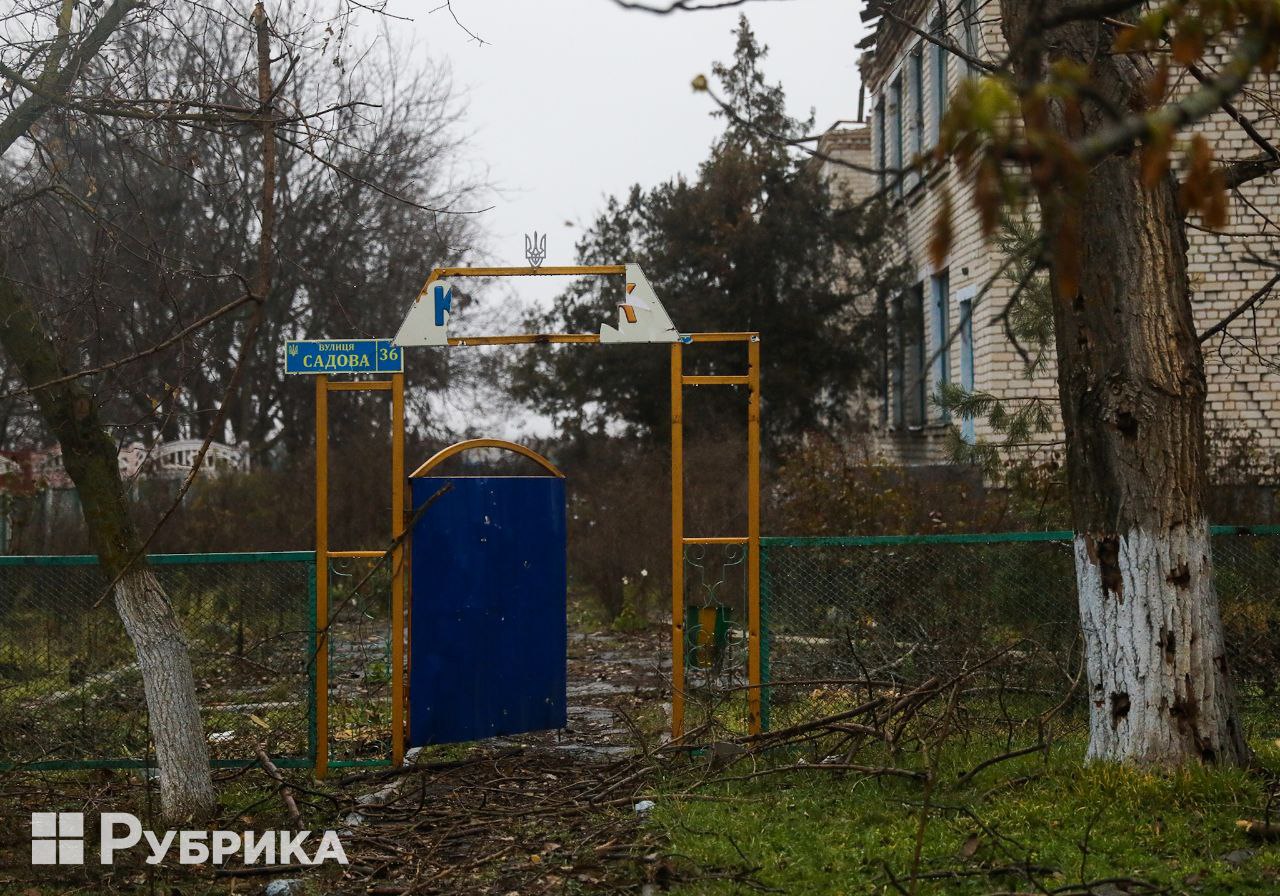
Almost all the residents of the village left. According to the locals, only nineteen people still live here permanently. Valerii, Tetiana, and their son Mykola, whom we meet on the edge of the village on a rainy autumn day, are not among them. They returned to cover the roof of their house with film for the winter. They invite us to enter the house and look at the destruction.
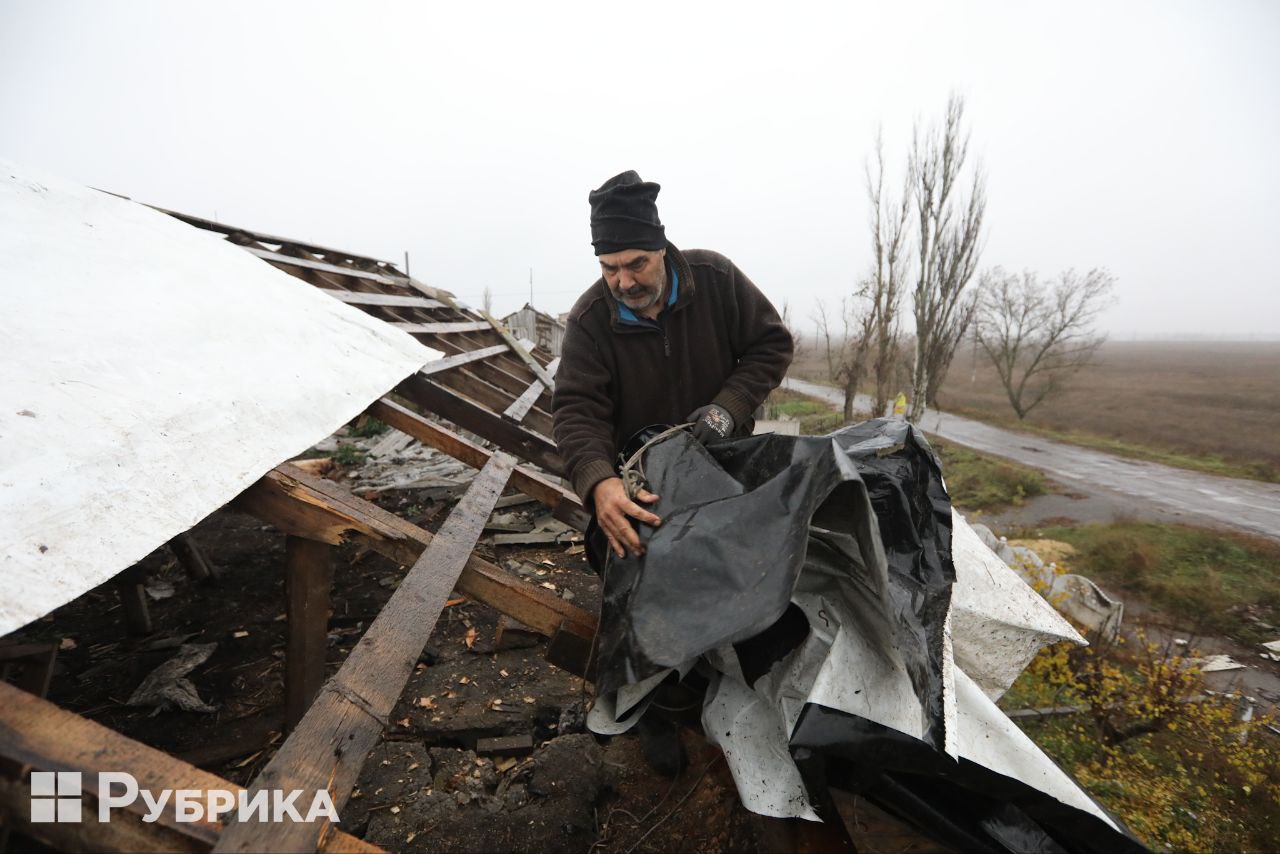
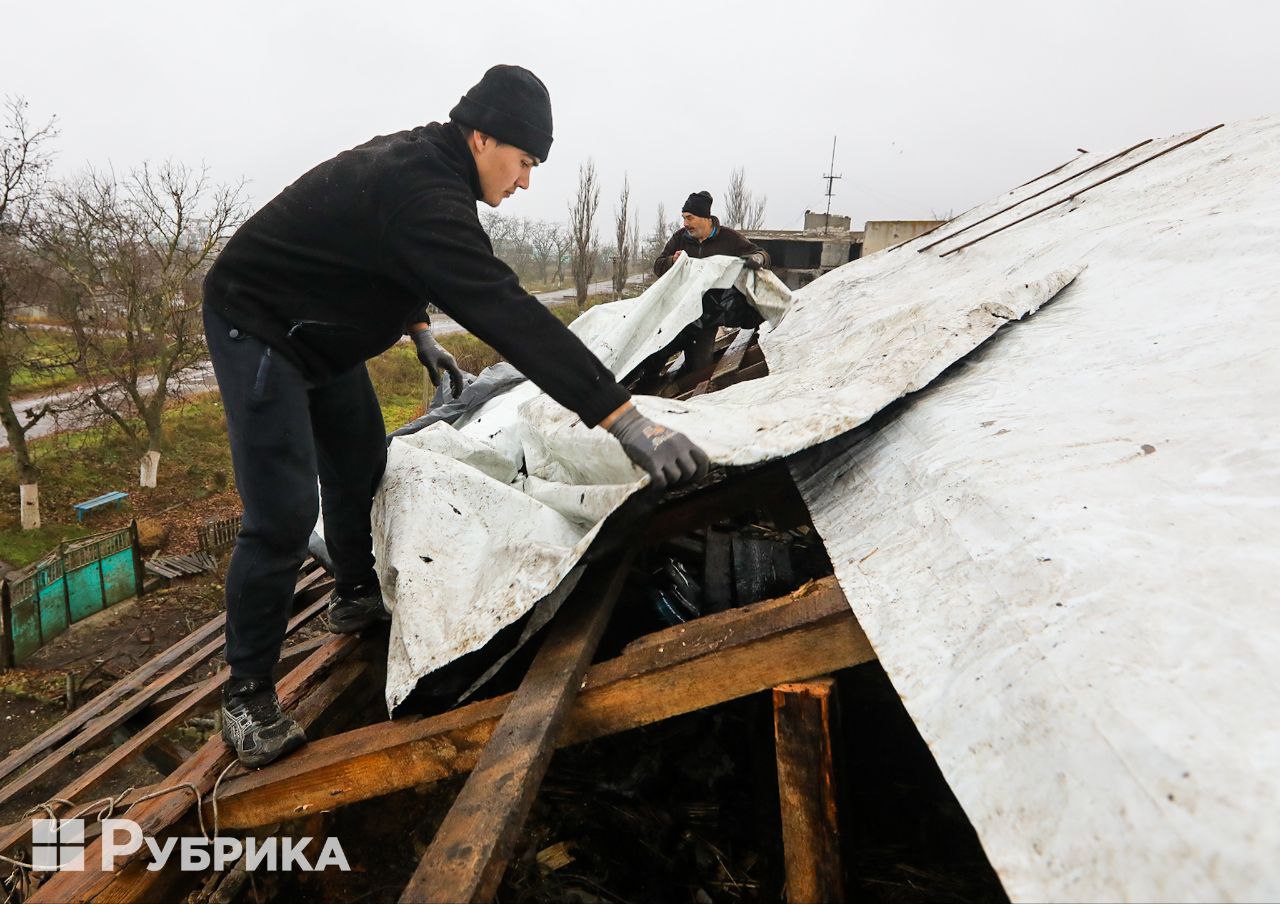
Valerii talks about how things were in Shyroke even at the beginning of the full-scale invasion:
"I was helping to build a checkpoint. The military said: don't delay. Something big is going to start here. Just a day before that, there was a strike on the Mykolaiv regional administration building, and the daughter of an acquaintance was wounded there. So we got together and left. But we left the property behind. We took bowls, mugs, socks, and underpants. We left the dog here and the cattle, so we visited the village once every few weeks. The major thing was to take the time into account. At six o'clock in the morning, you had to drive in. You could do some business until nine o'clock, then the shelling started. Sometimes the russians would attack in the evening. Then we would come in leaps and bounds: we would arrive and run away. We were driving through fields. As the russians rotated, they started shelling more actively. So much of the village was destroyed in the last months. You see, there are cassettes from missiles in front of the house. They were in the yard, so we collected them. So many cassettes fell in our yard! In the last month, they [russians] were furious, so they were constantly shooting."
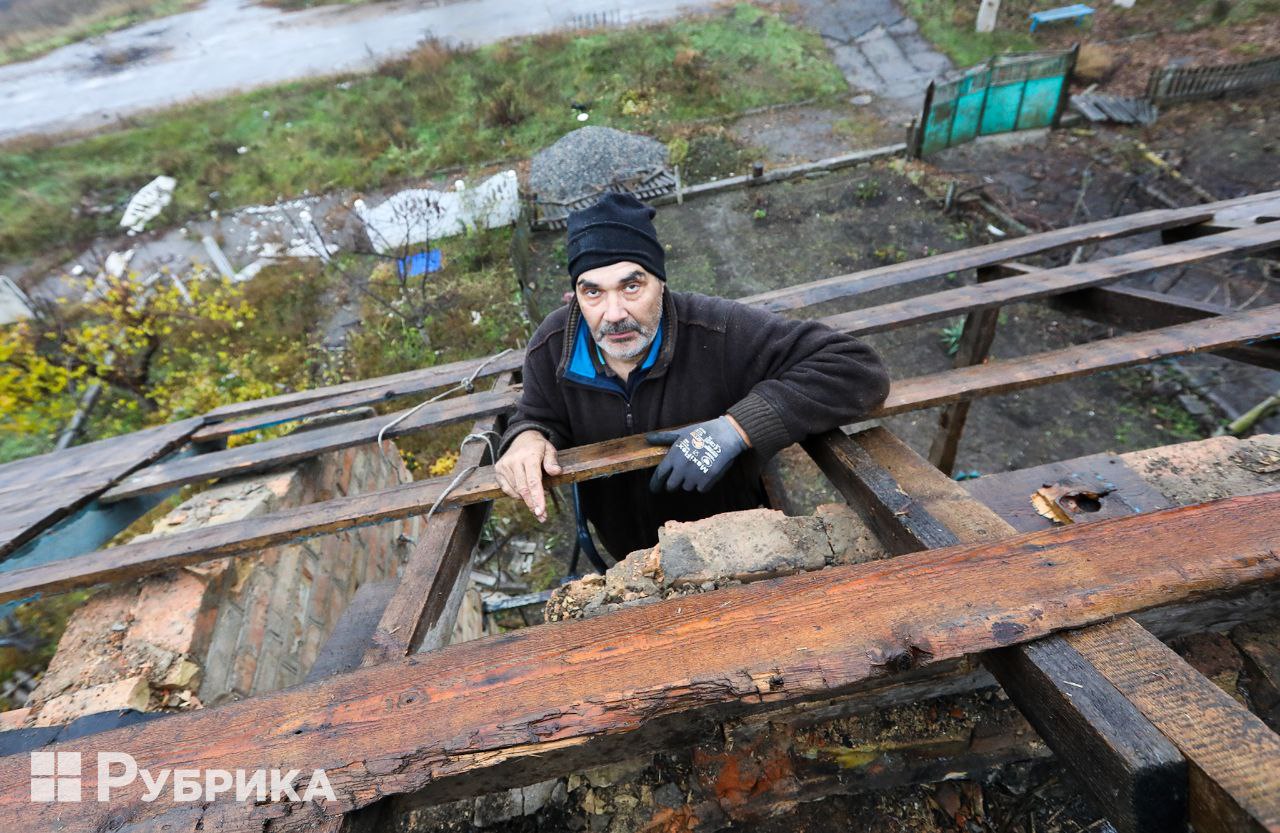
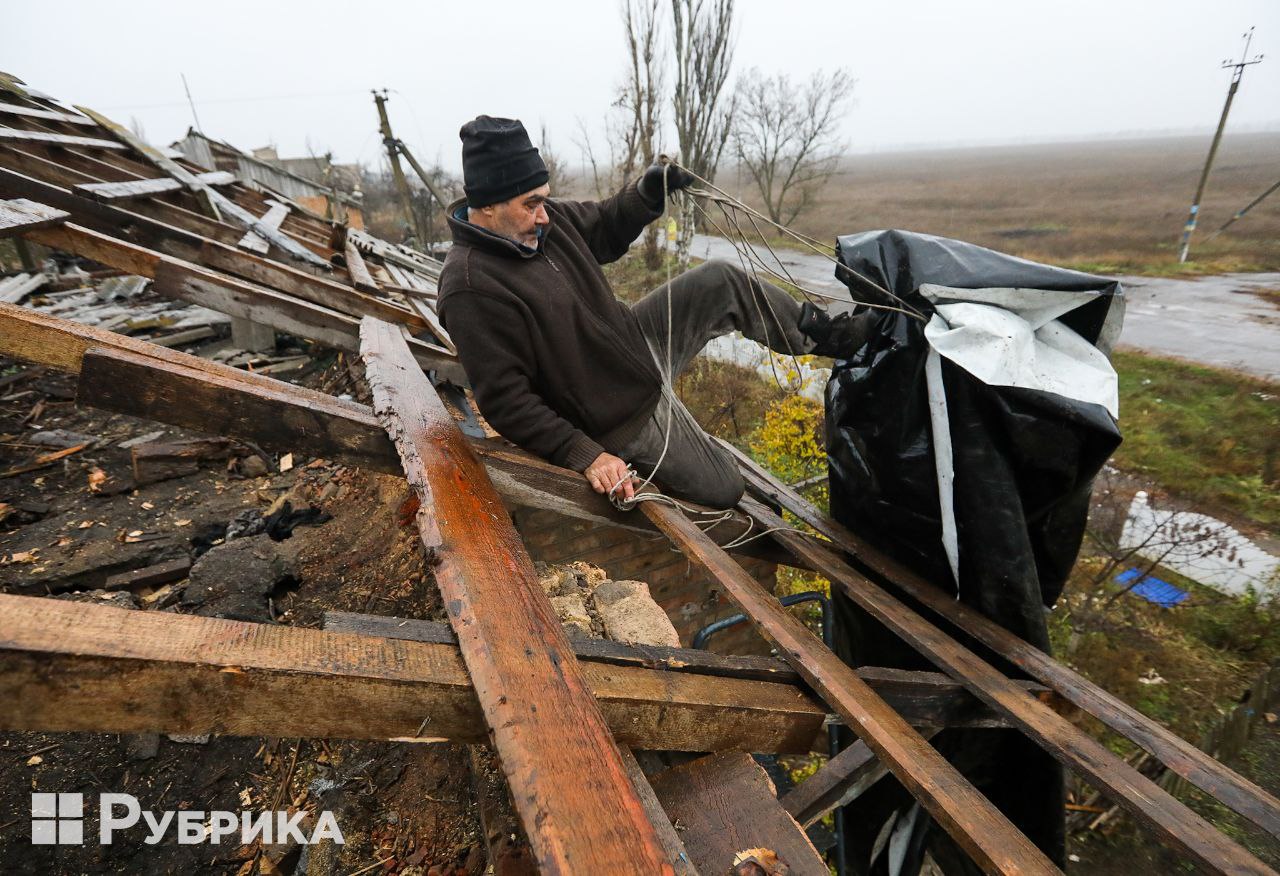
While we are talking with Valerii, the head of the territorial community Serhii Peresunko comes to organize the transportation of slate and boards. And he also delivers food packages. He talks about the destruction caused by the russians:
"In our community, two villages were severely affected—Shyroke and Chervona Dolyna. In Shyroke, about 95 percent of the houses are damaged. In Krasnaya Dolyna, it's about 70.
There were days when we sat in the basement and counted the strikes during the shelling. Sometimes there were 95 hits. Now people are starting to return to repair houses. Well done, our farmers. They are returning, beginning to work, rebuilding the destroyed farm, so there is work in the village."
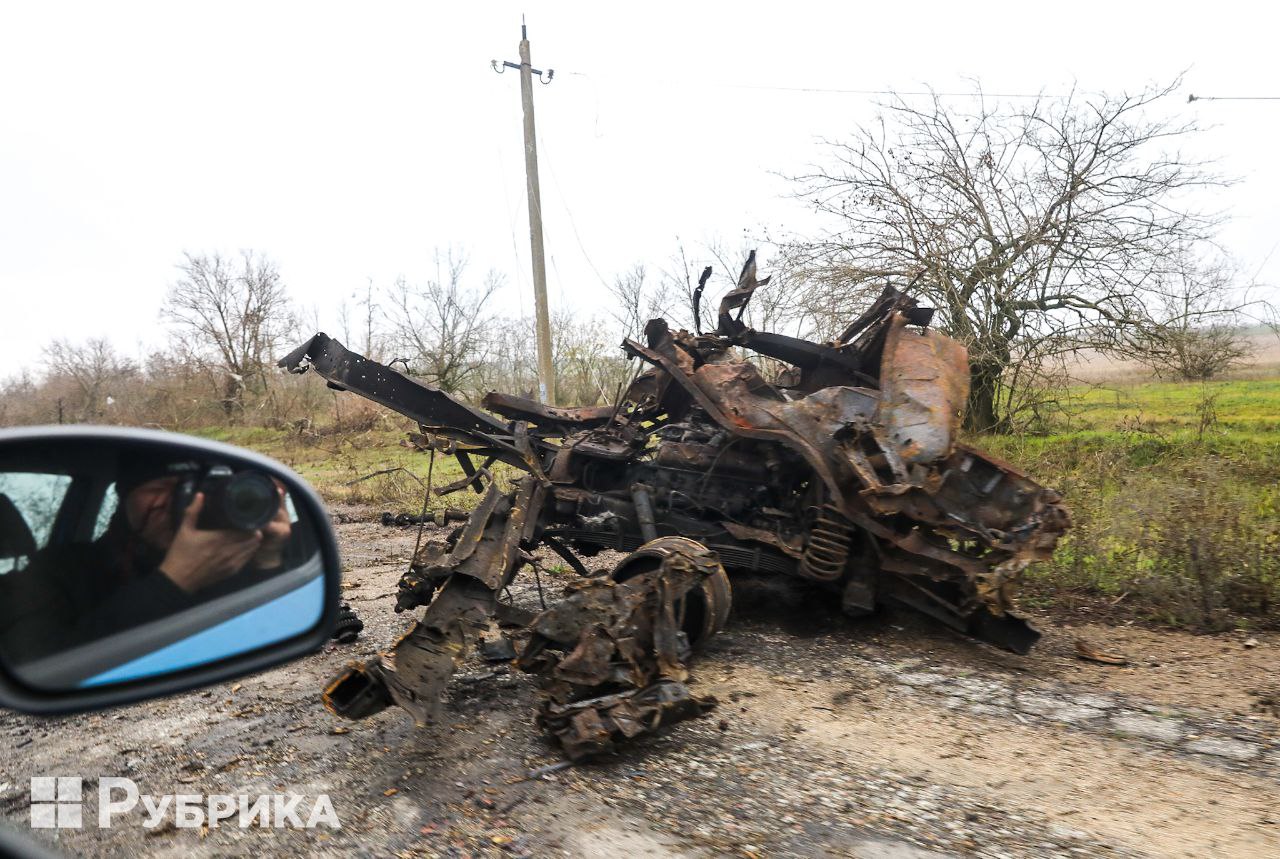
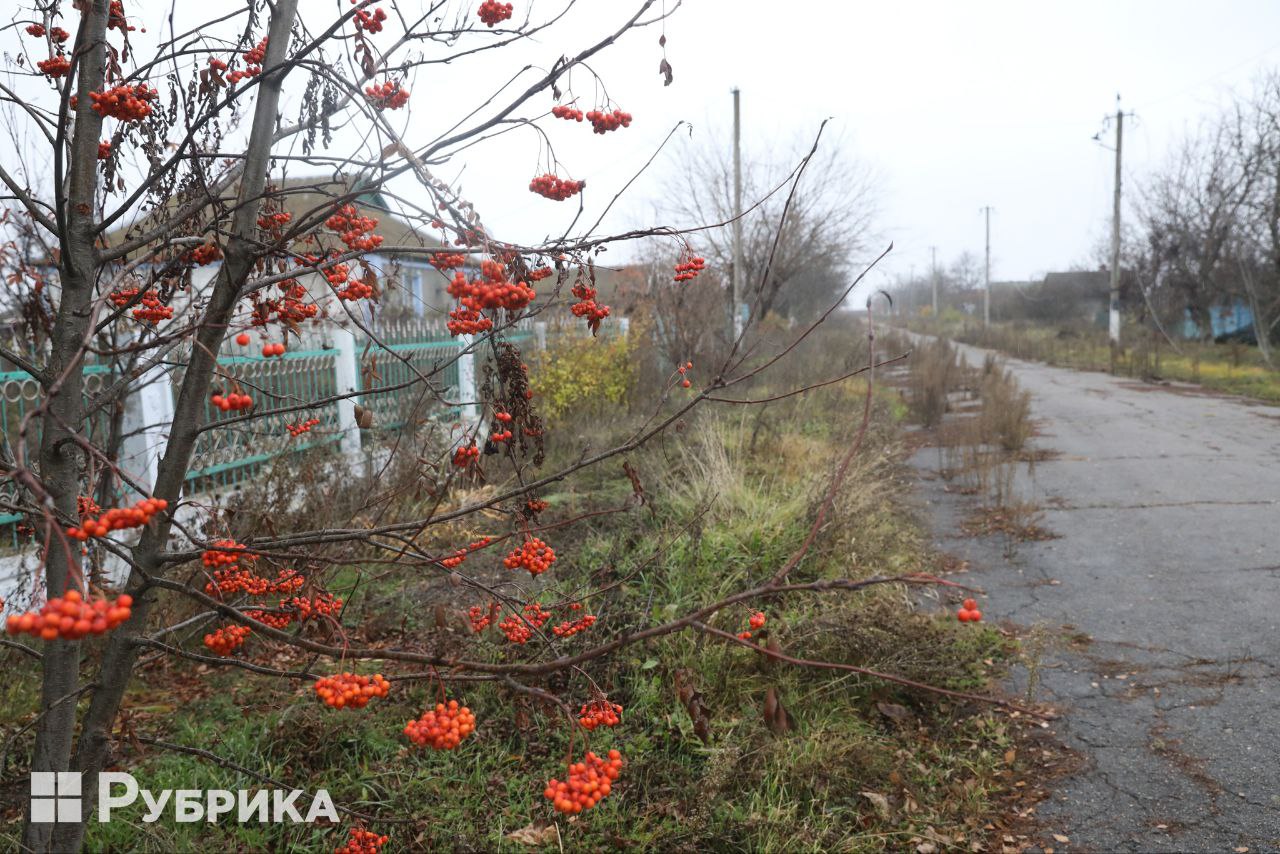
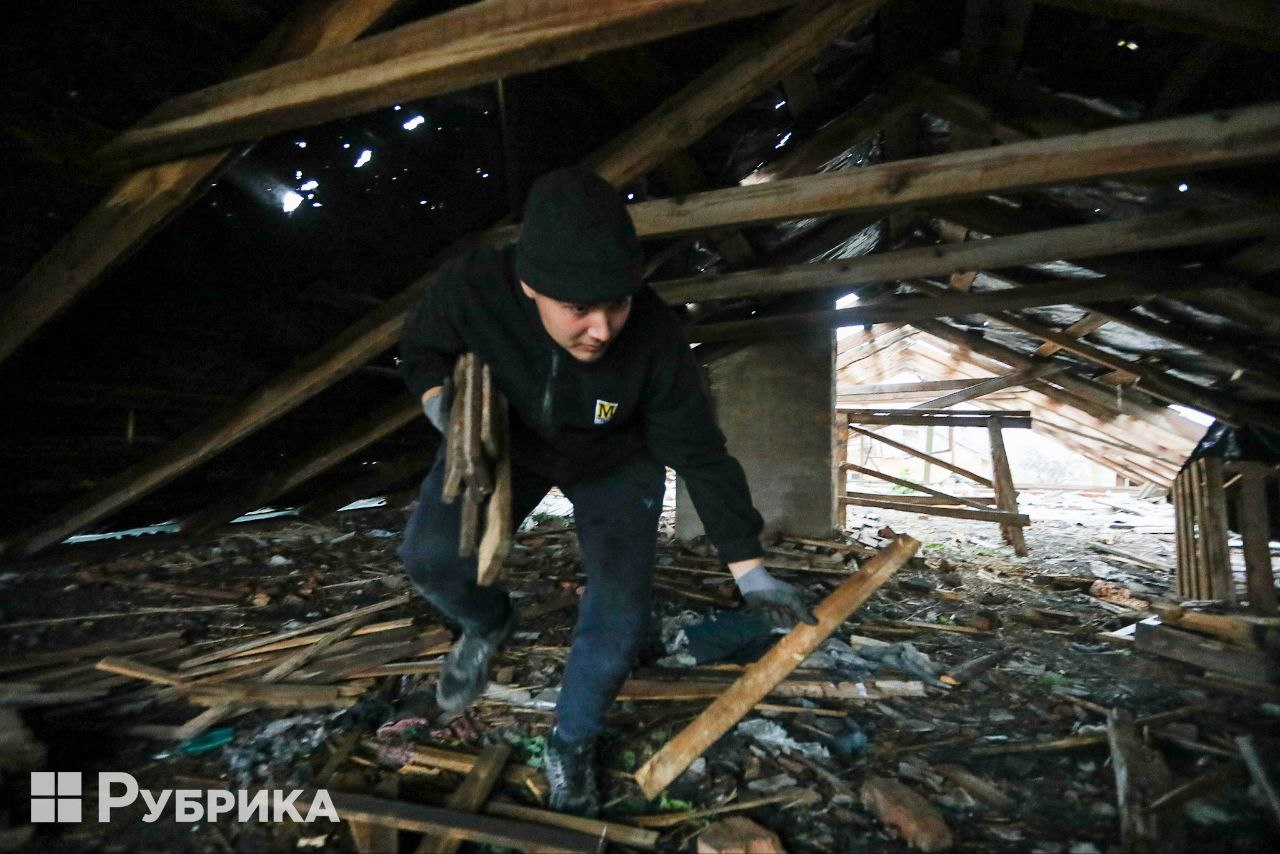
Valerii's house is neither warmer nor drier than outside. Father and son are trying to cover the roof with film. Nearby, there is an explosion near the road, and we can see smoke. Nobody knows what blew up. Valerii says that there are no people there, so likely an unexploded mine detonated. Walking in the fields or on the roadside will be dangerous for a long time.
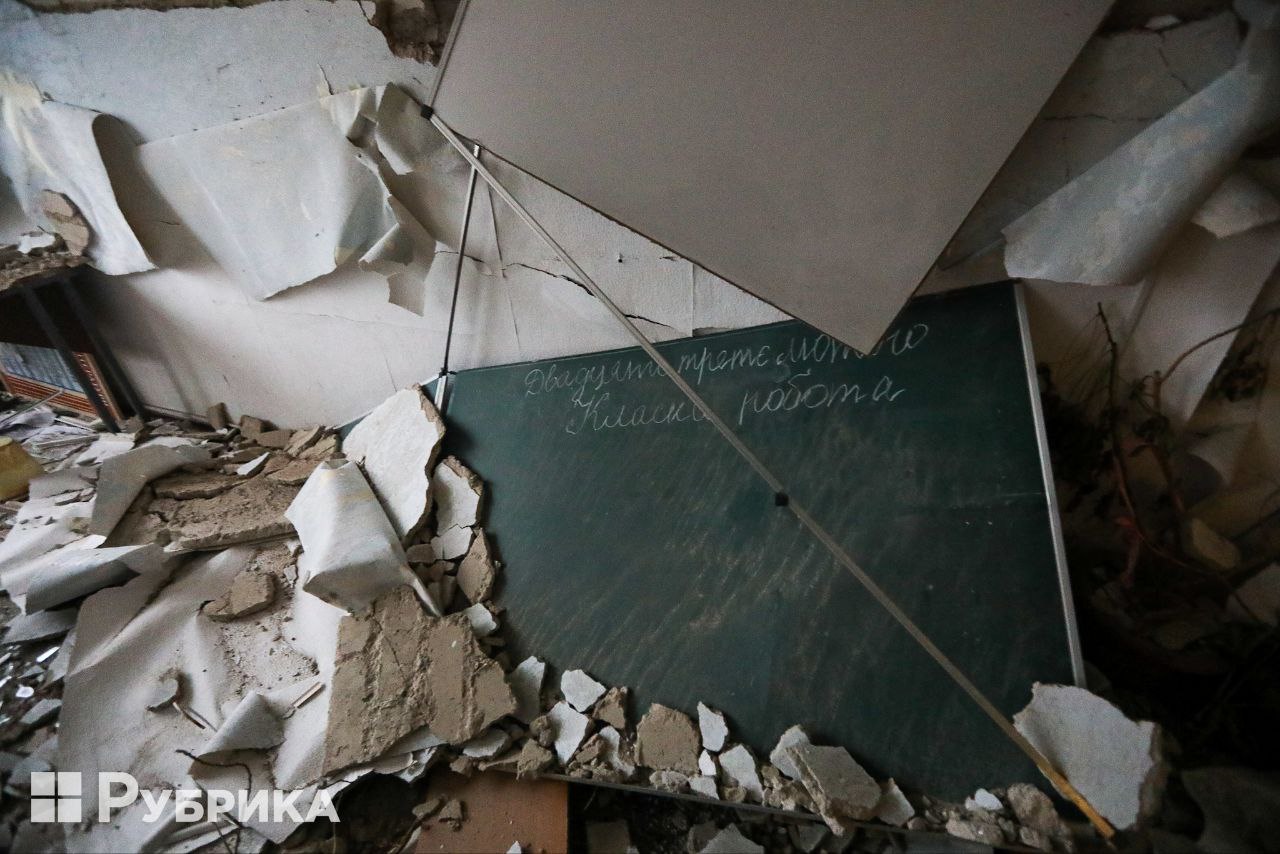
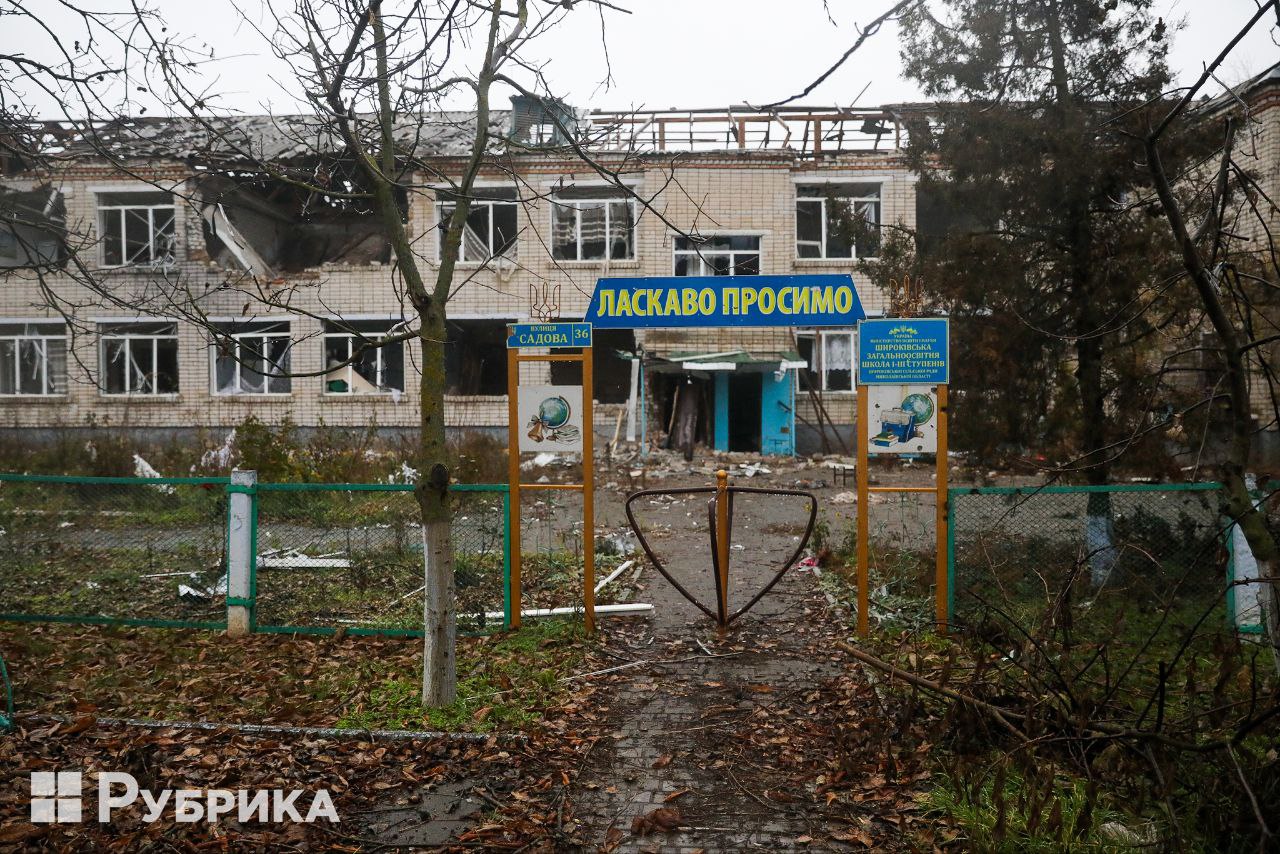
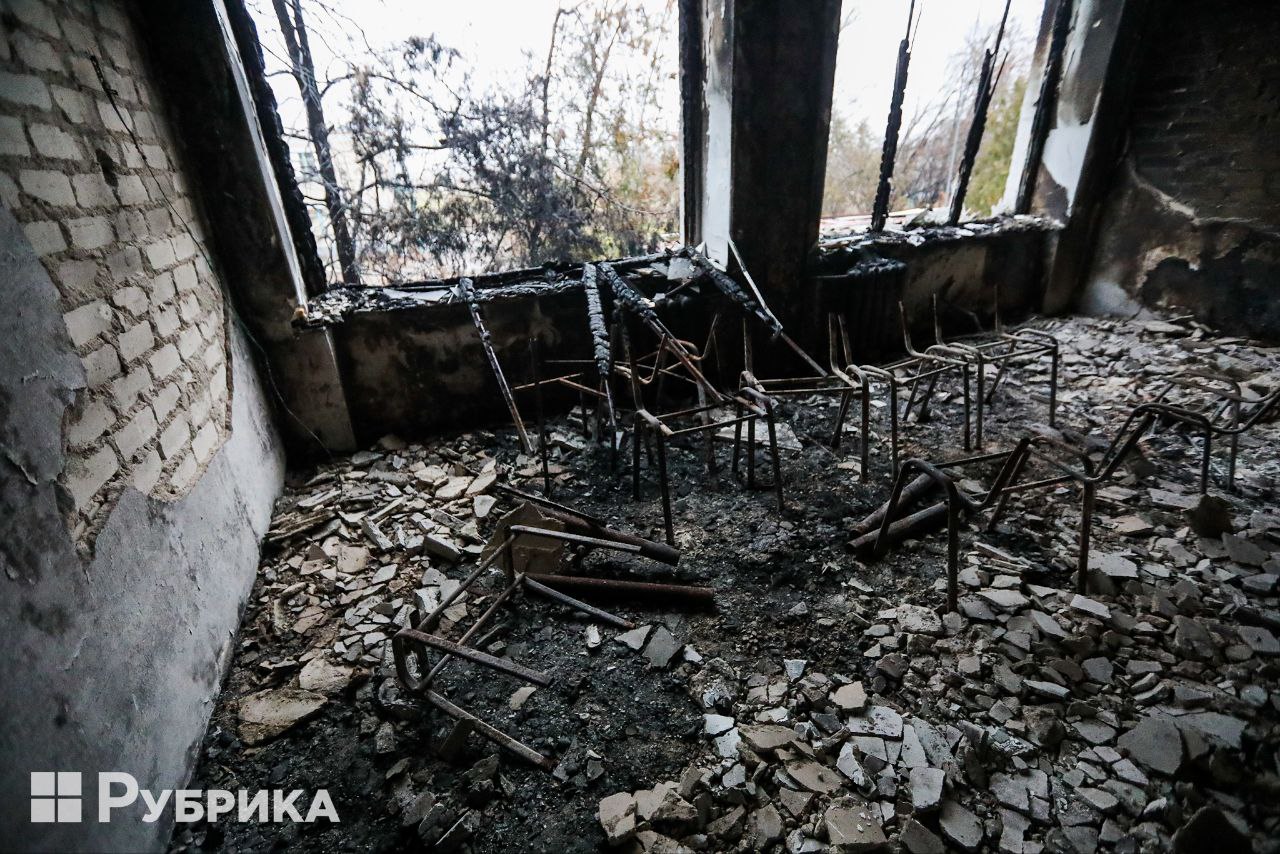
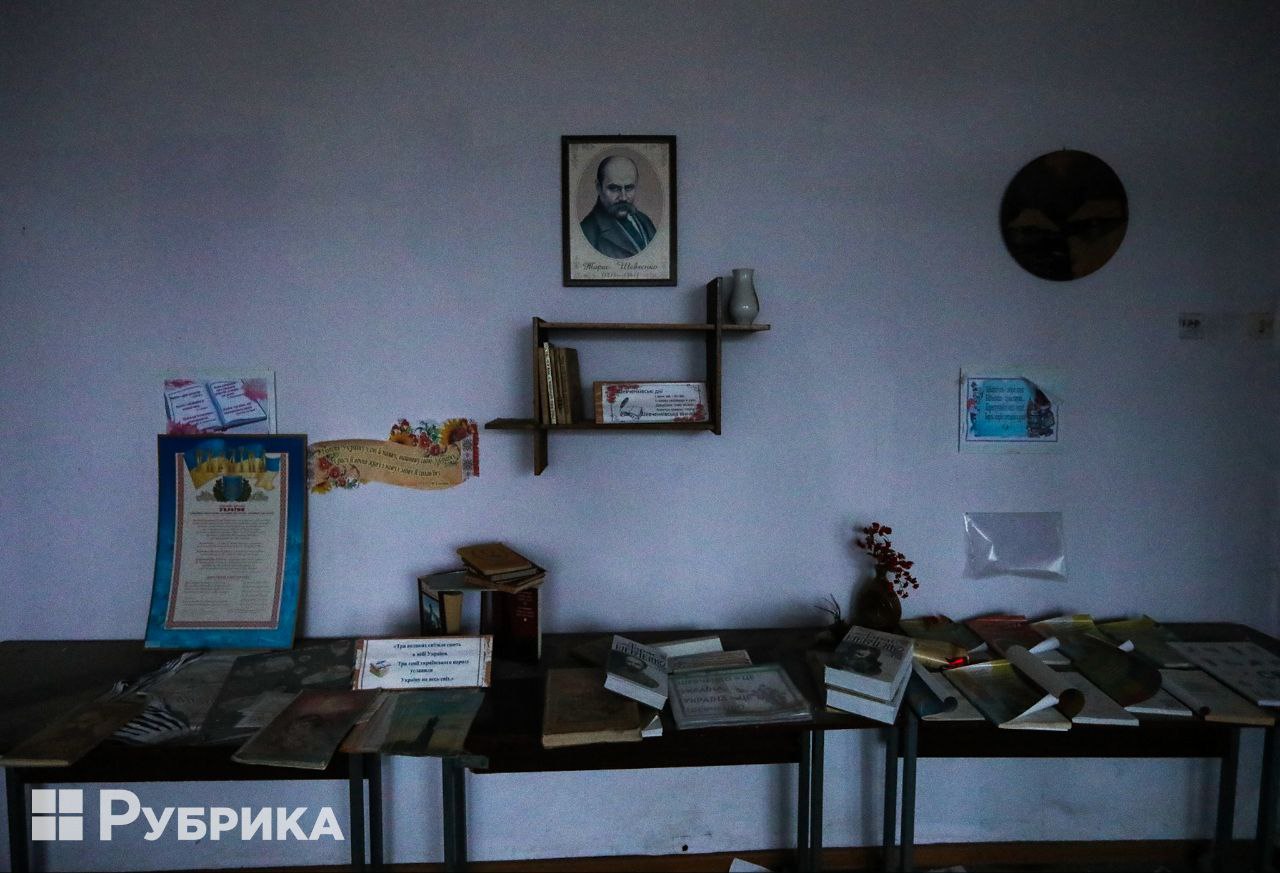
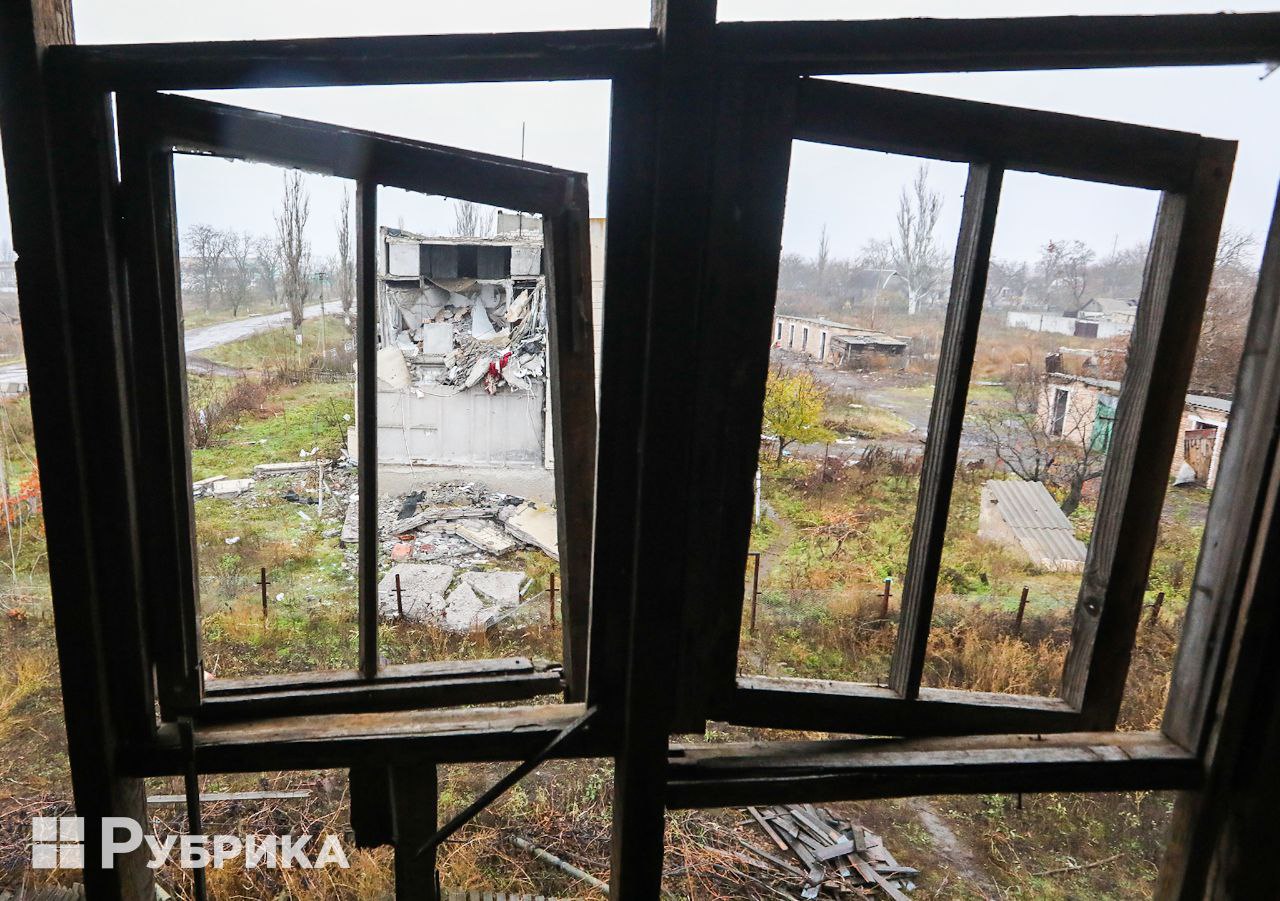
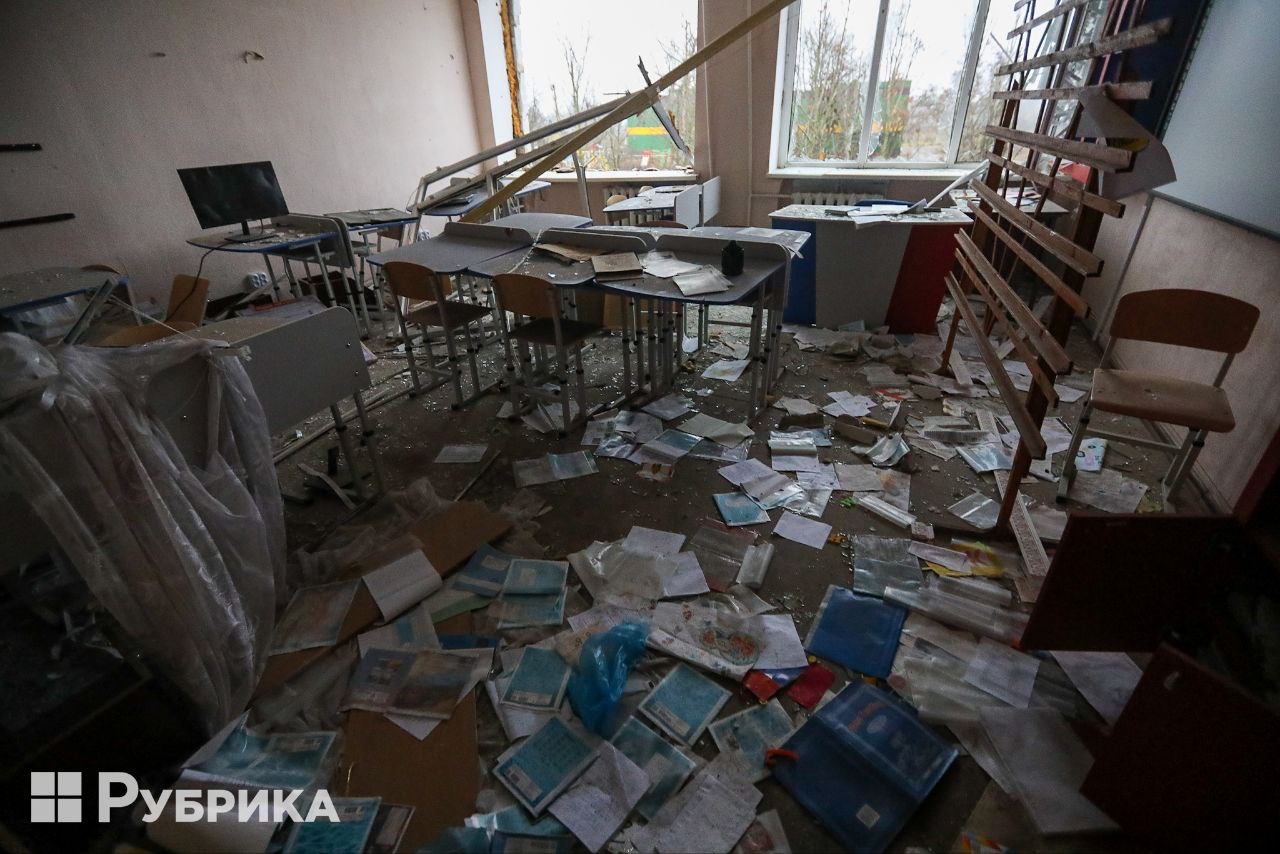
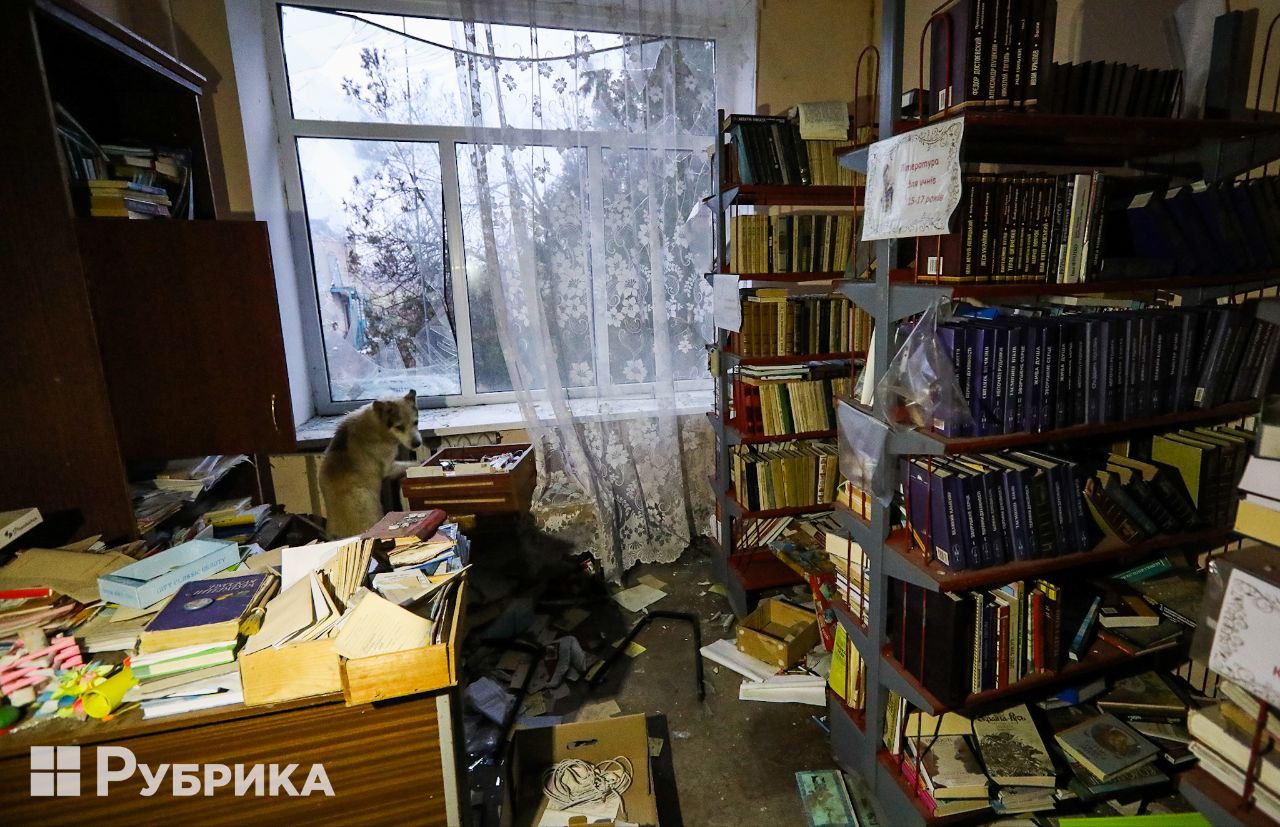
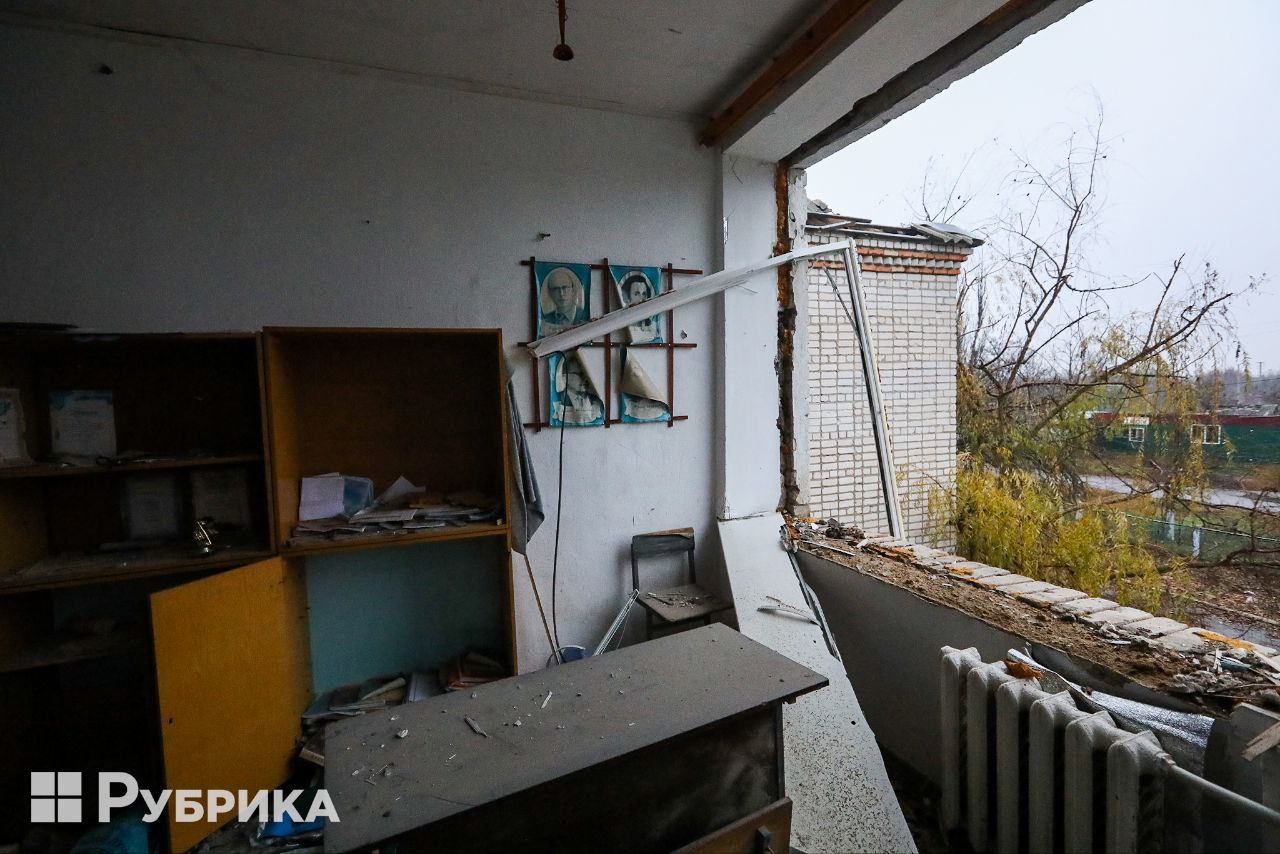
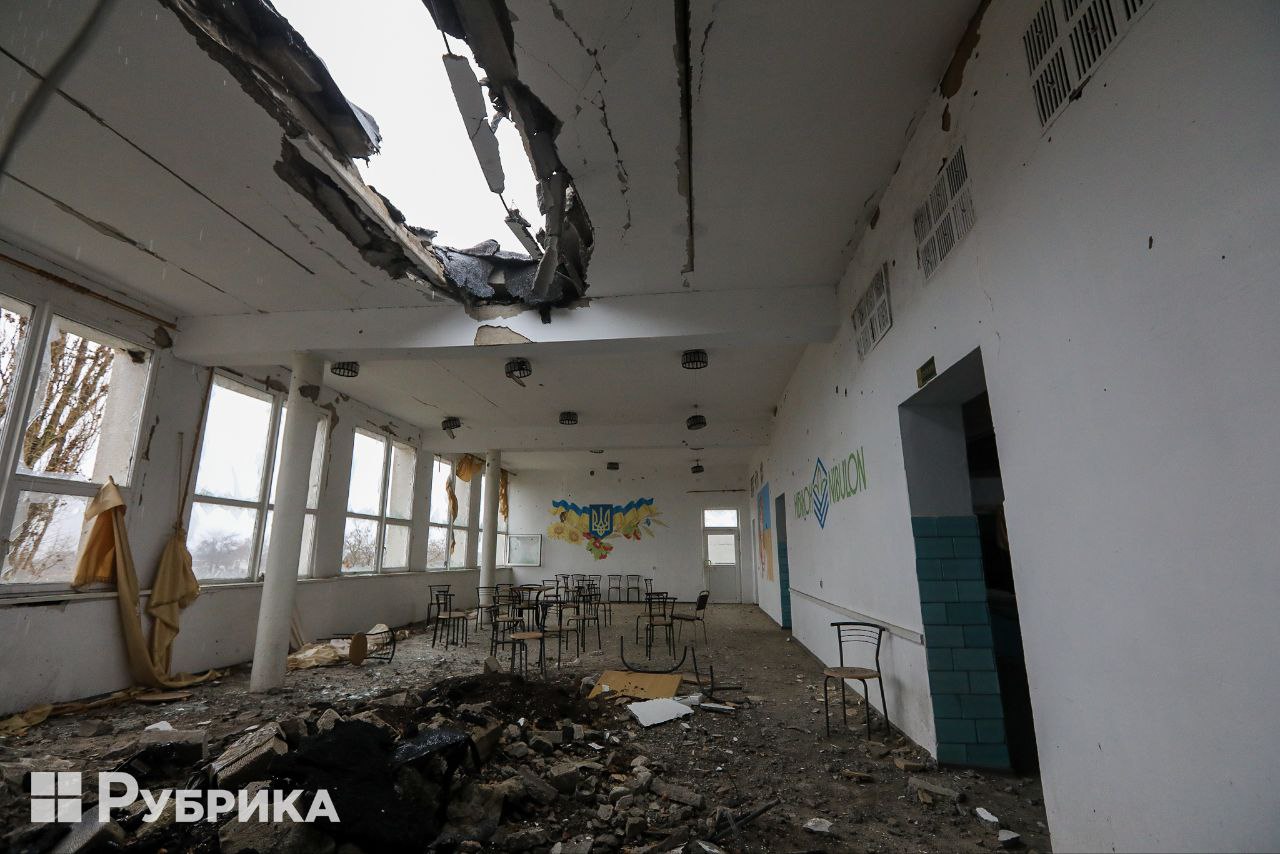
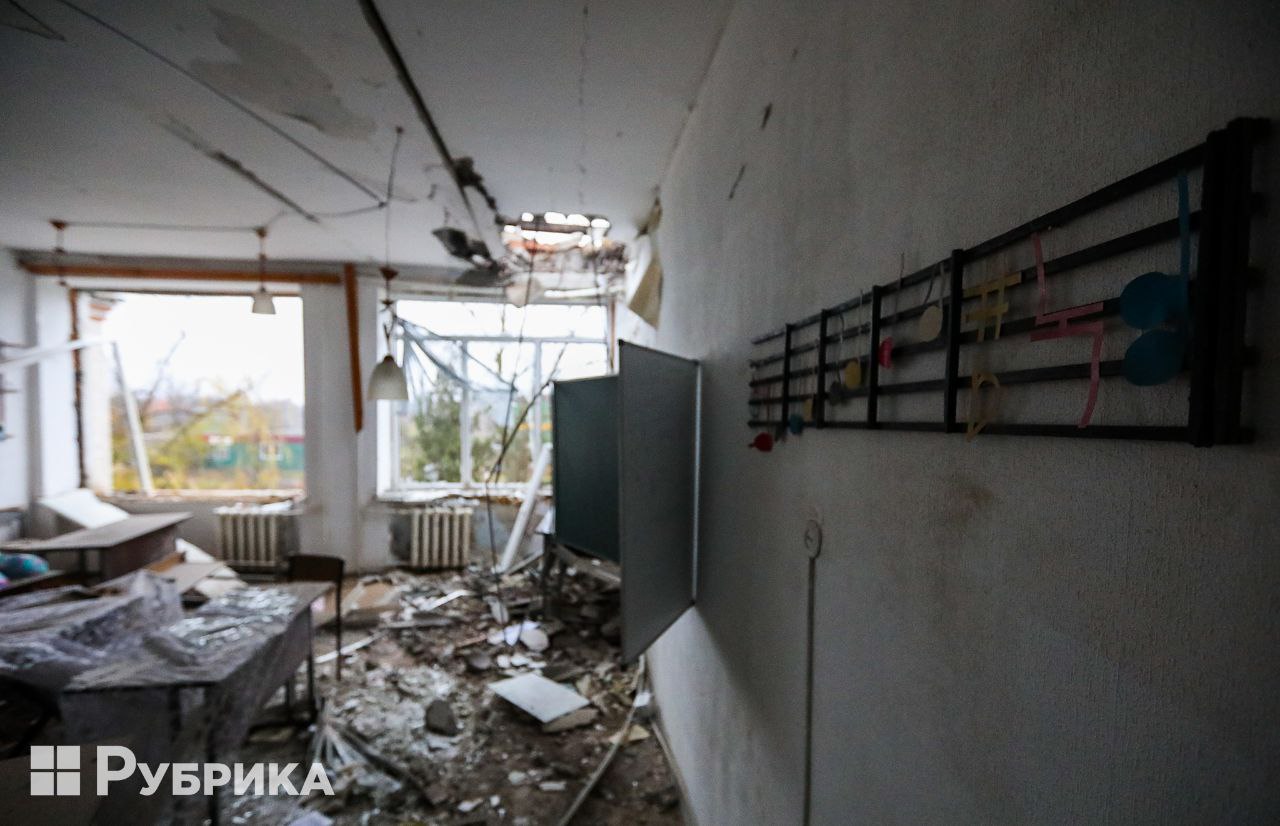
Everywhere in the village, there are destroyed houses. The entire town is actually in ruins.
It seems that the school suffered the most: everything is broken here, there are no surviving windows, textbooks and notebooks were scattered around by the explosive wave… In one of the classrooms, the blackboard reads: "February 23. Classwork." It is still there.
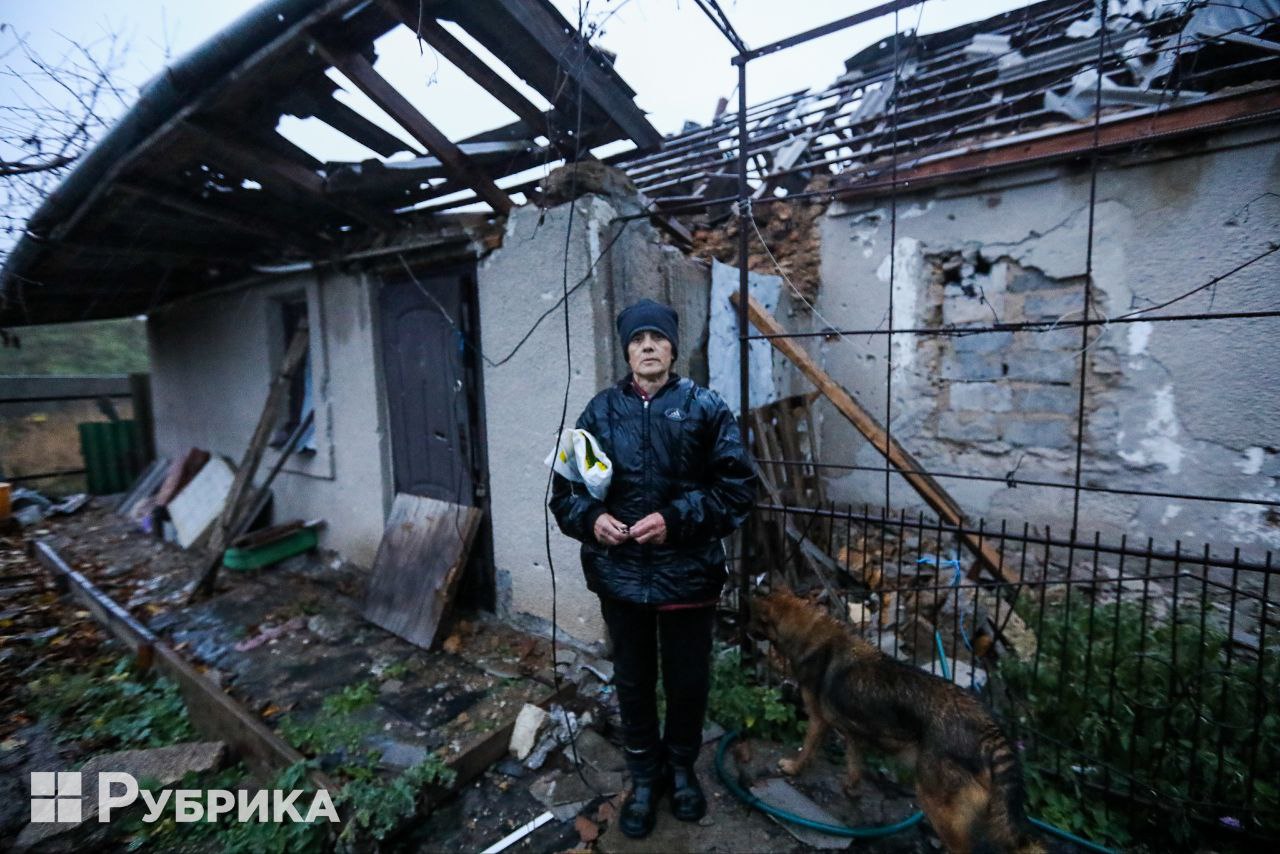
Nearby we meet a local Tetiana, who is 64 years old. Tetiana spent all her time in the village. In her house, she cared for an older woman, Klavdia Karas. Due to her illness, Klaudia could not walk, so Tetiana had to be by her side, which is why she did not leave the shelled village.
The woman says that the military helped with food. Tetiana did not plant a vegetable garden this year due to the russian fire. Now the woman has firewood, bought potatoes, and receives a pension. But all this time, from the beginning of the full-scale war until now, the village has had no electricity.
"I came home at six o'clock, lit a candle, and went to bed at eight. They promise to restore the light until the new year, but everything depends on the war and how it will be at the front. I didn't believe until the end that they would attack us. No one in the village supported russians. When they entered the village for a short time, our residents immediately called our military to warn them as soon as they saw where the russian tanks had passed through."
Everyday life in the village was not happy:
"I woke up in the morning, went to feed the chickens, cooked for them, then an acquaintance came, we talked, back and forth, and the day passed like that. Everyone was afraid that the shell would fly into their house."
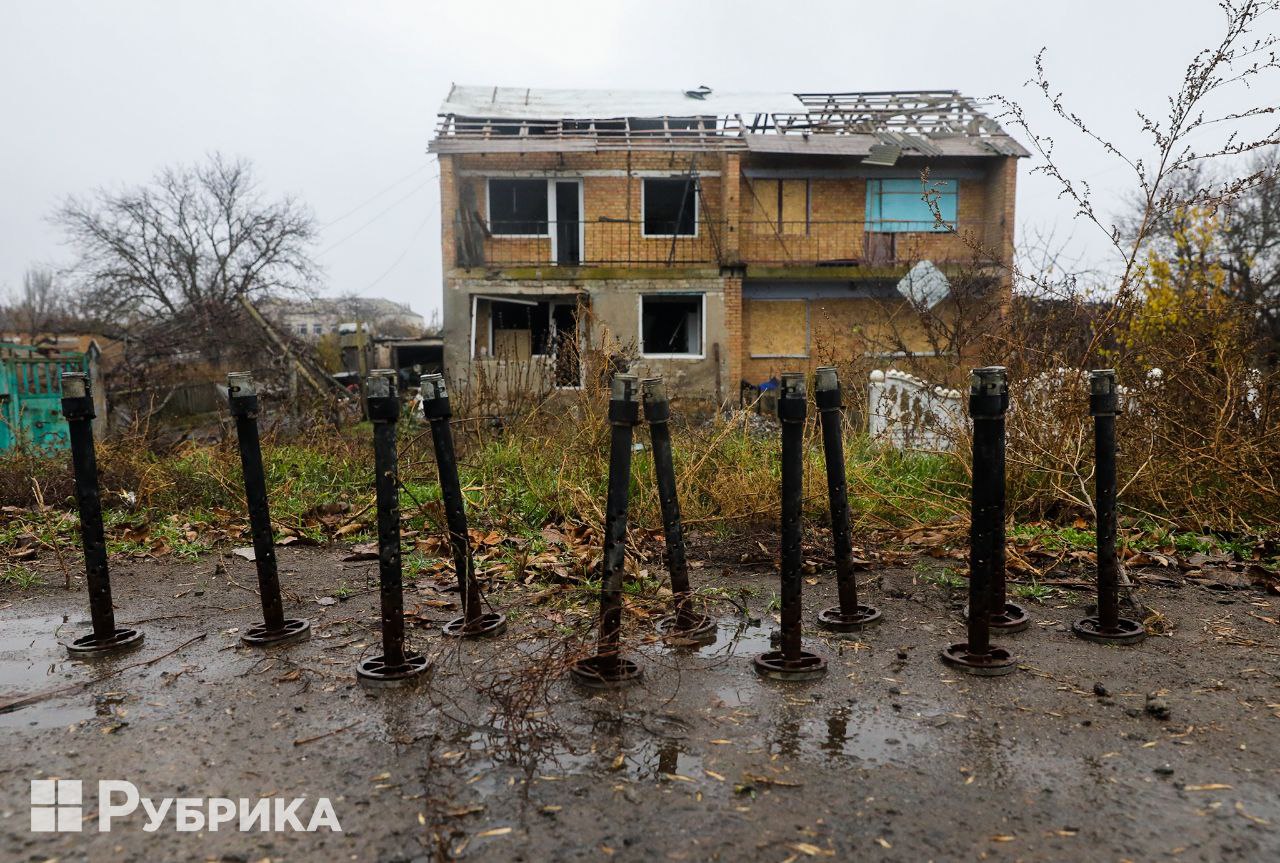
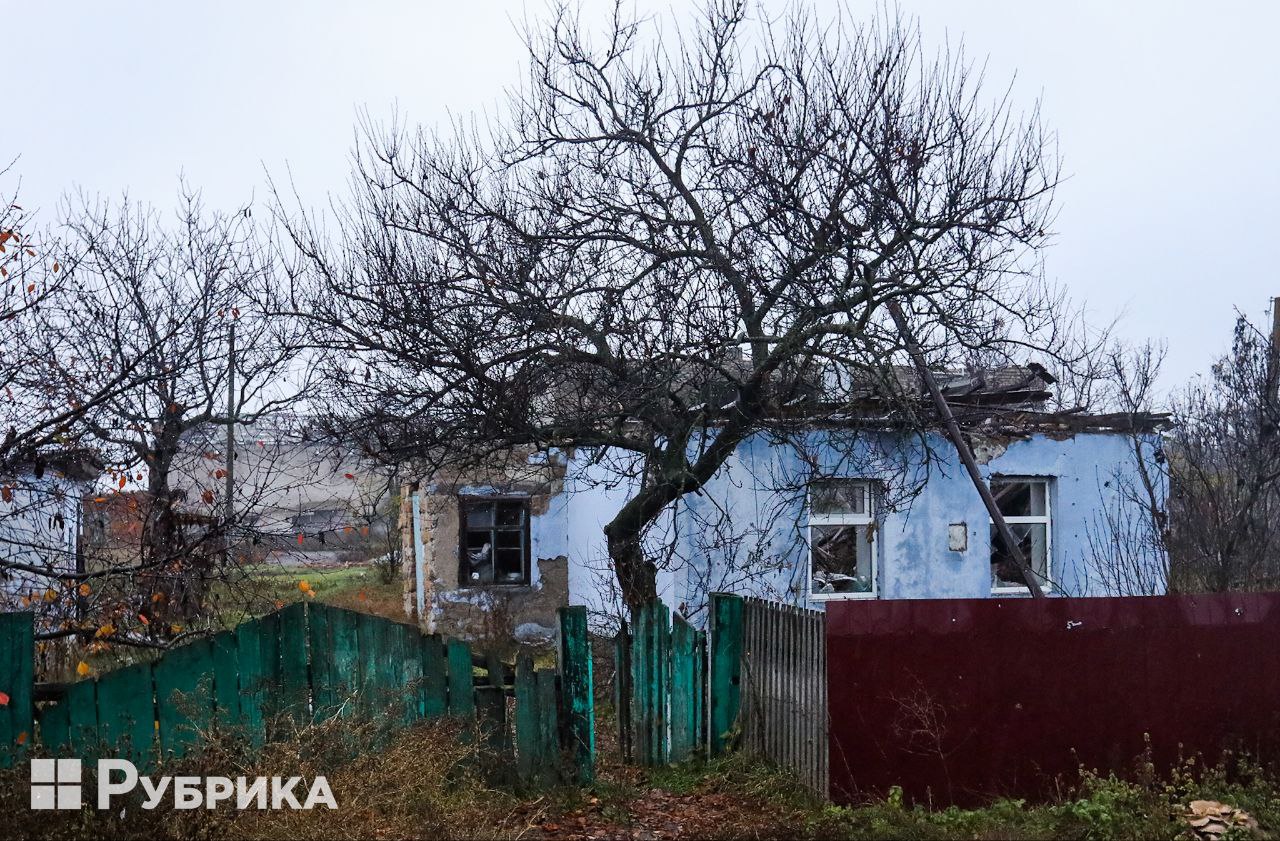
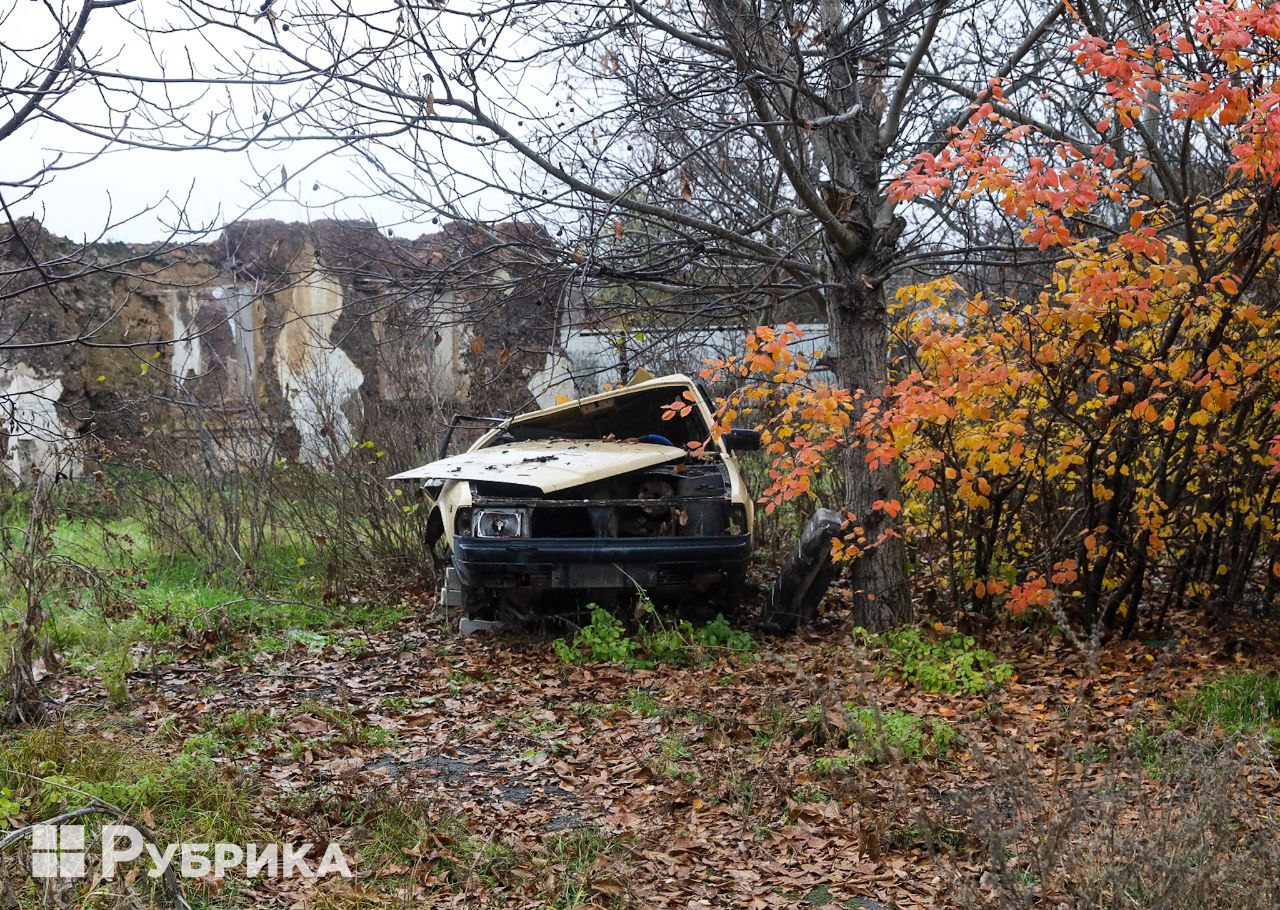
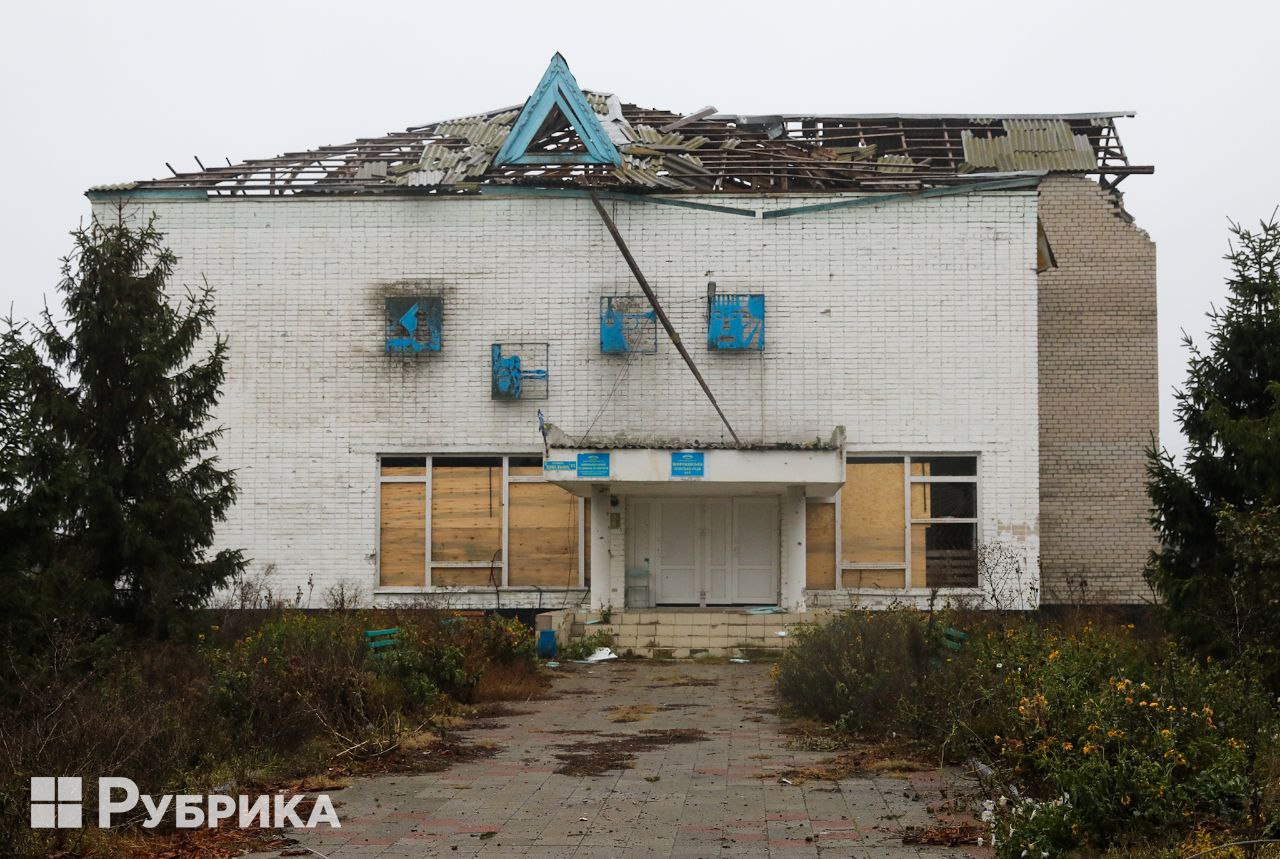
But the shells "flew" and hit many houses. We are passing by a destroyed house. Tetiana shows where our soldiers died and points where everyone lived.
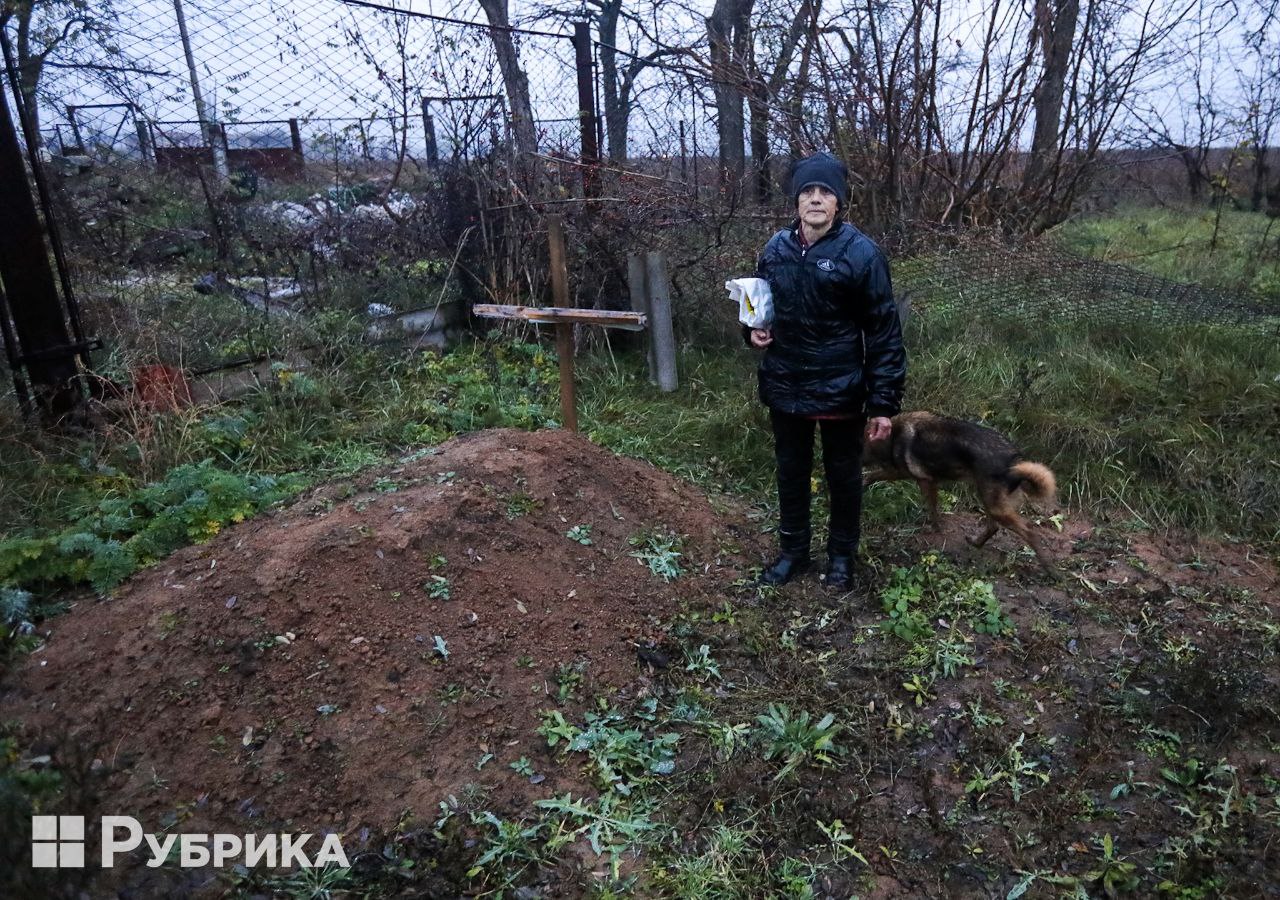
Tetiana's house was also destroyed. And Klavdia, Tetiana's sister, is buried at the edge of their garden. The woman died on May 10. Then the Ukrainian military made a coffin and helped bury her here (the local rural cemetery is in the village, which was occupied at the time). After the death of her sister, Tetiana moved in with a friend.
Despite the bad weather, which only reinforces the impression of the destruction, people still exude optimism. They believe that the village will soon be rebuilt. And they are glad that russia has left.
Locals know what danger sounds like
Oleksandrivka, Kherson region
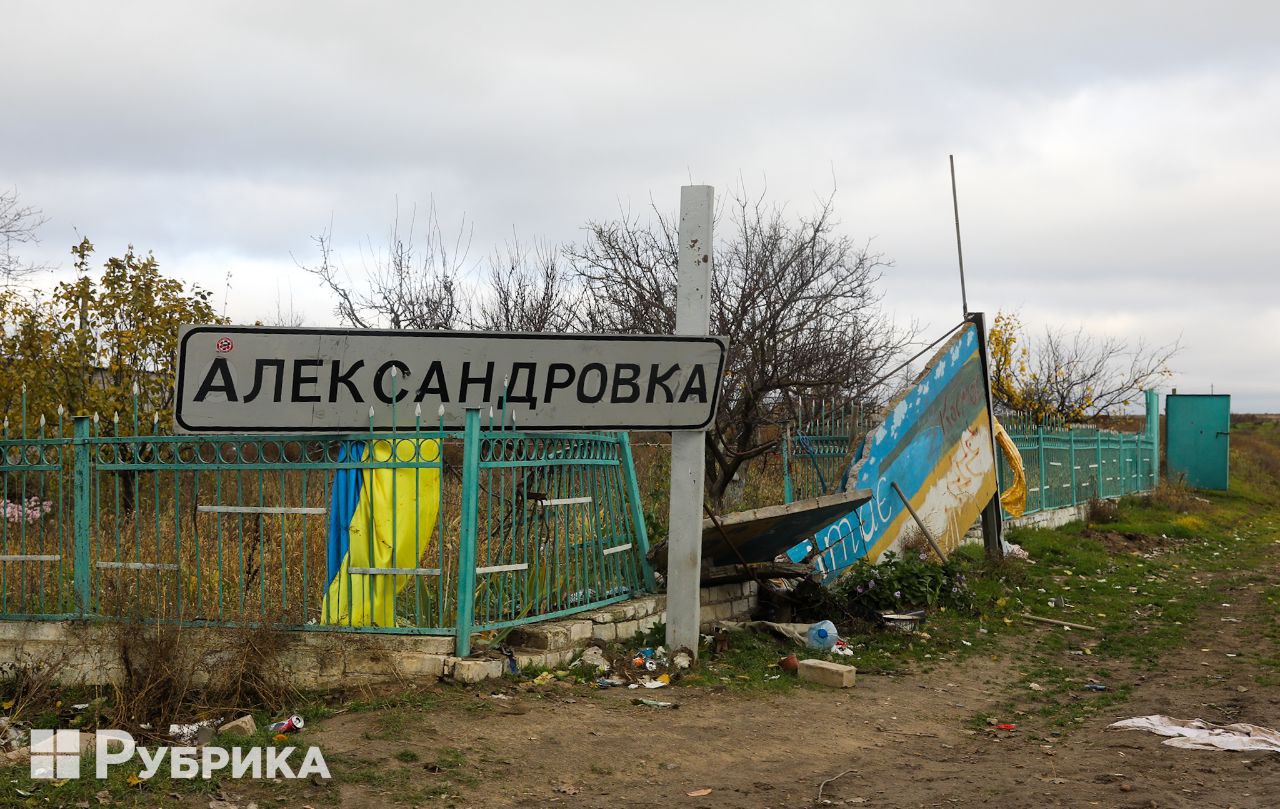
Oleksandrivka is a village in the Kherson region that was almost destroyed by russian troops in April and occupied by them until November. Before the full-scale invasion, nearly two and a half thousand people lived in the village. Now the town is empty; living here is still very dangerous.
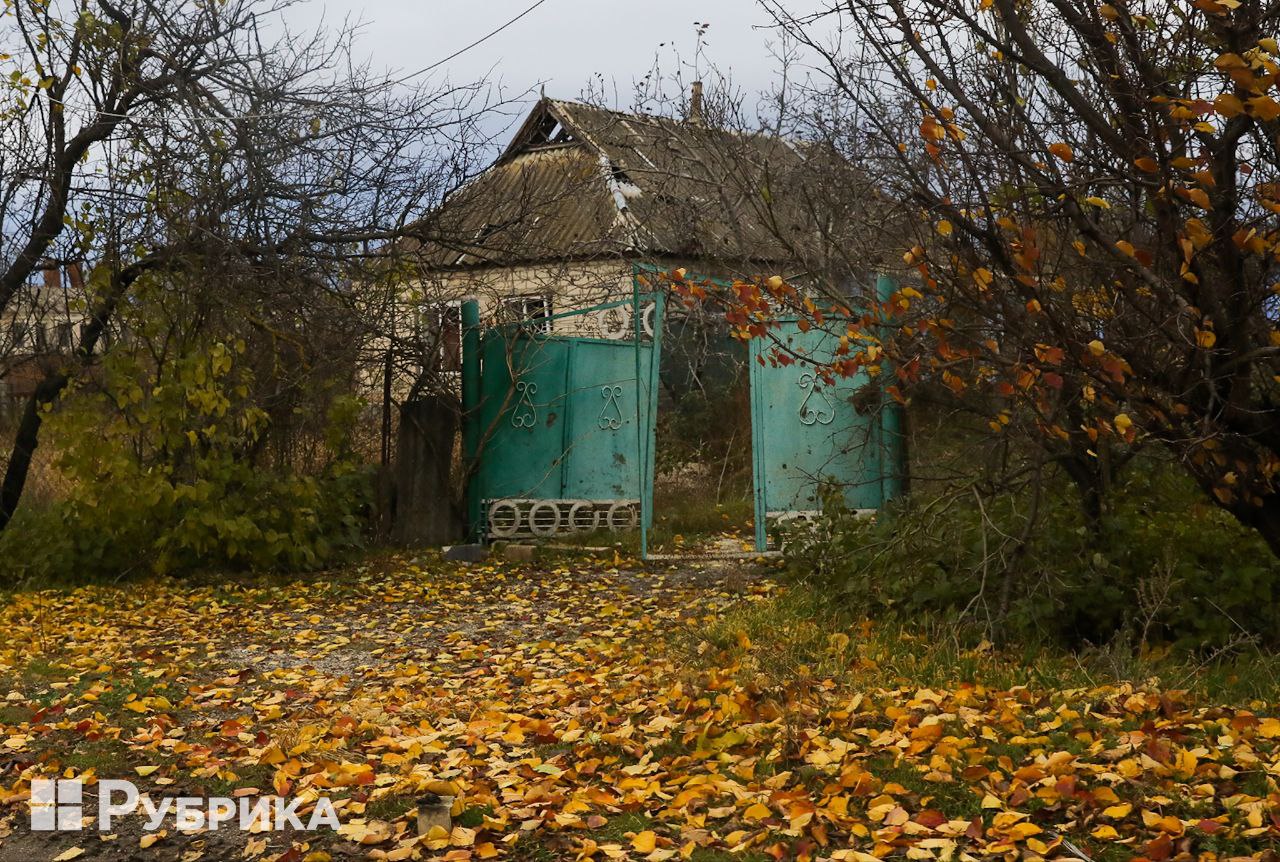
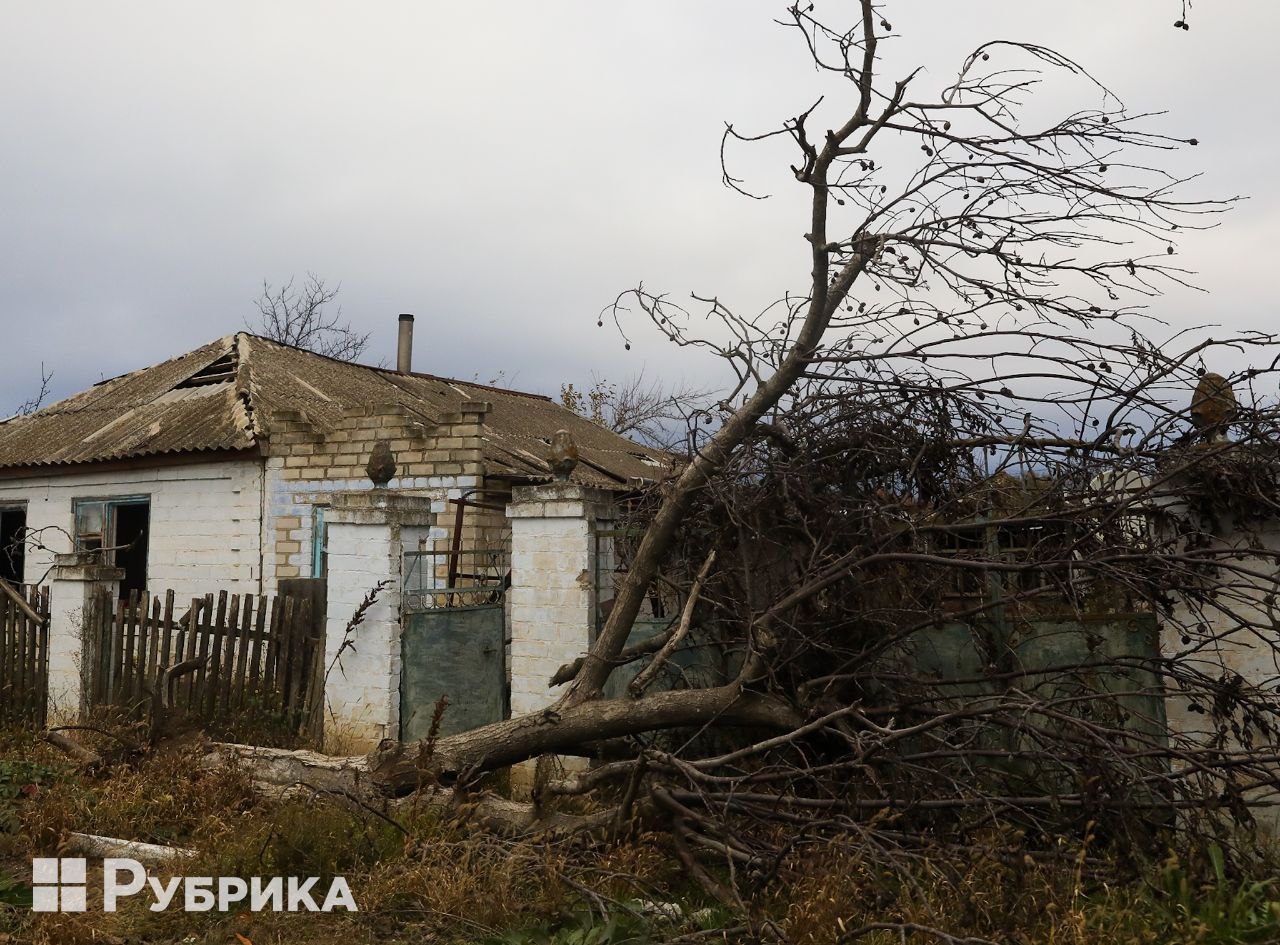
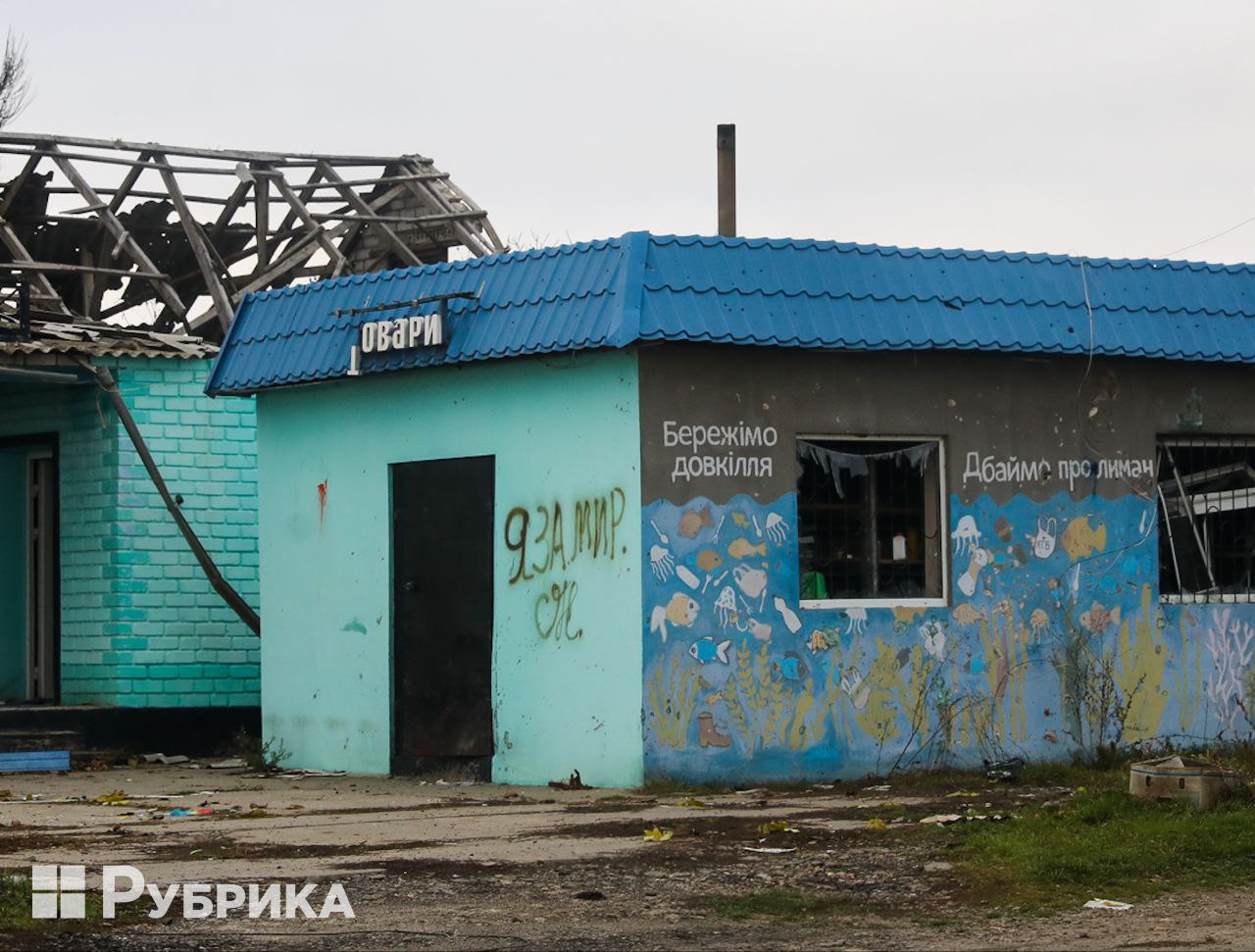
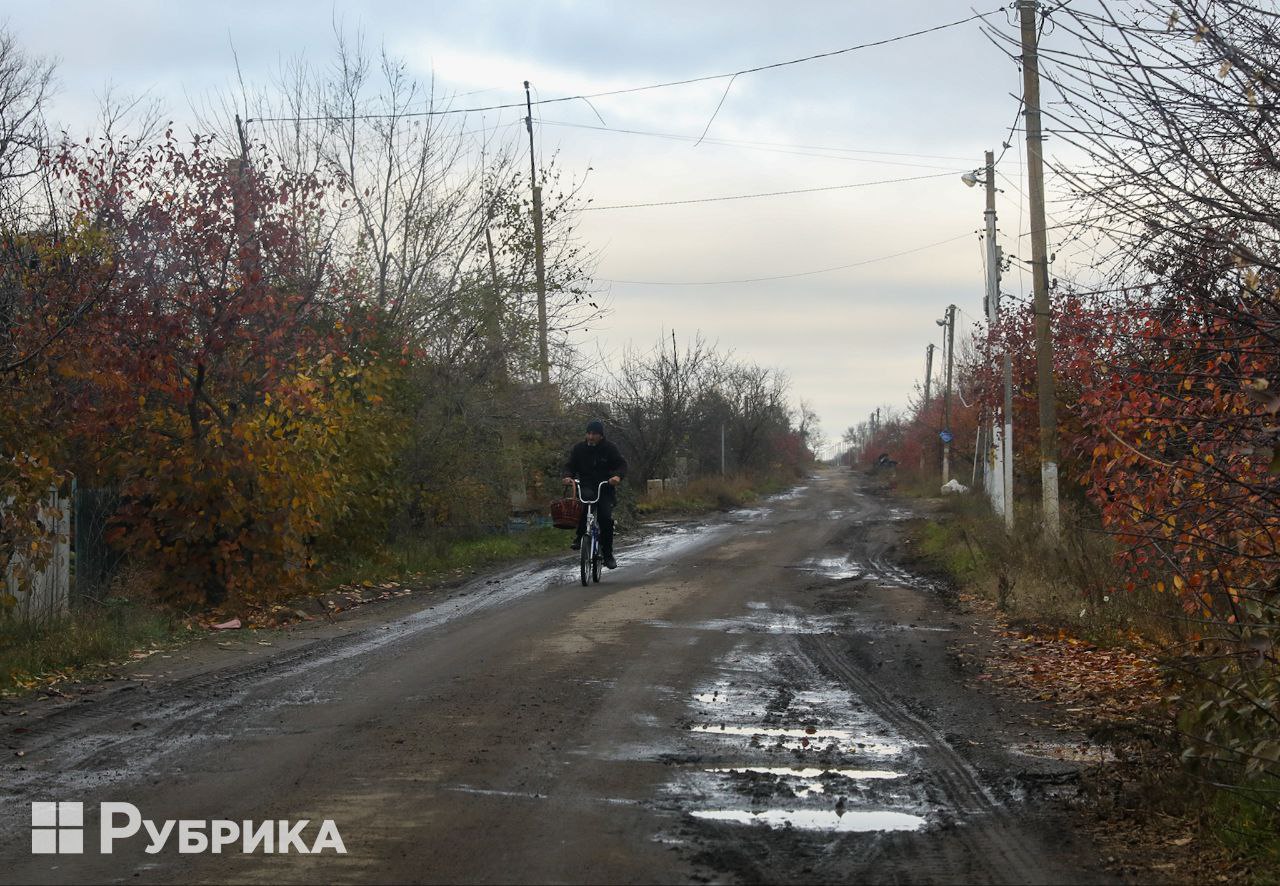
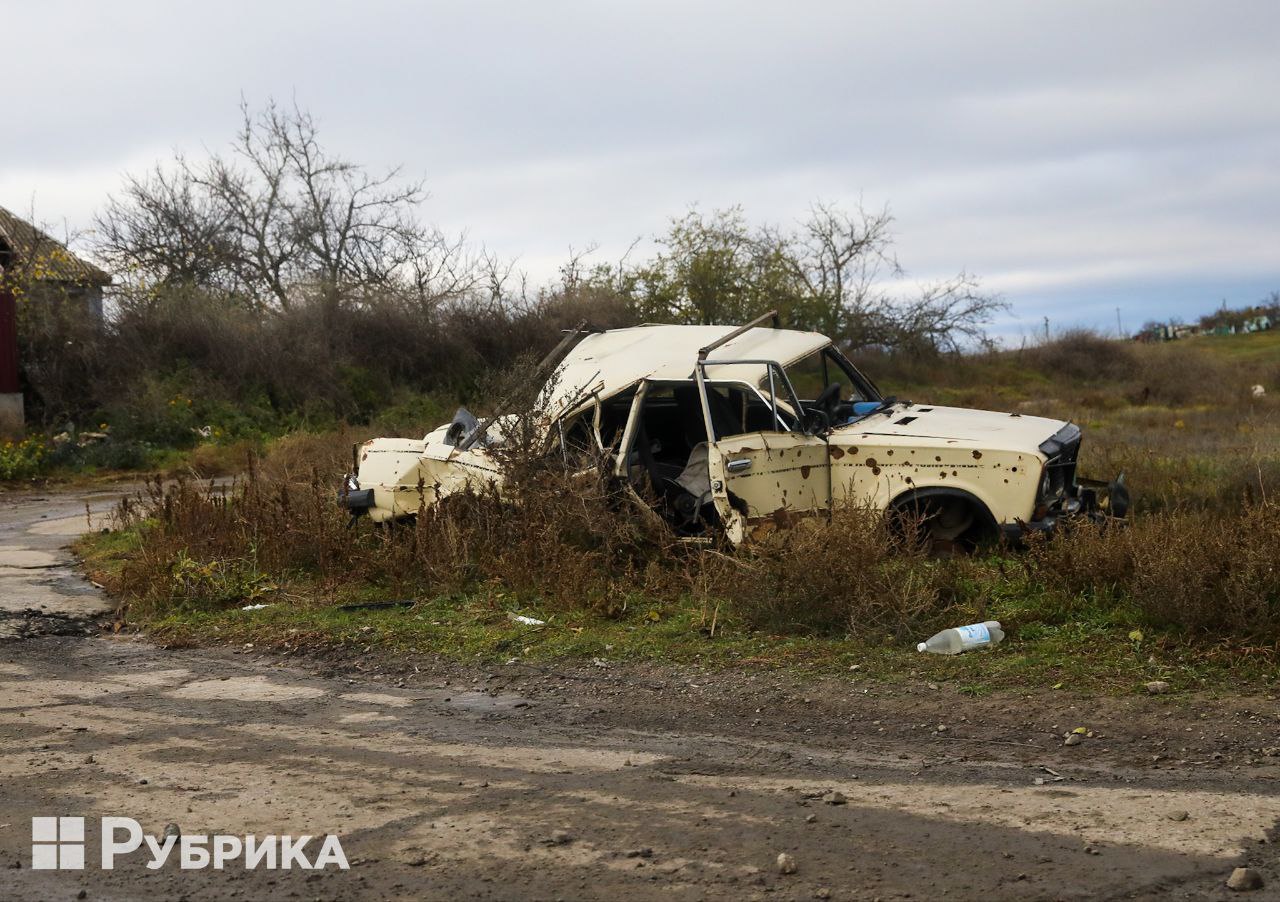
Before leaving, we see two guys on mopeds. And when we leave the village, we hear the shelling close to us. Most likely, it's Grad MRLS. The guys we saw a moment ago quickly turn back. The locals know what danger sounds like.
We drive through the village, stopping several times for a short moment. But we still take most of the photos from the car window. Getting out of the car is dangerous.
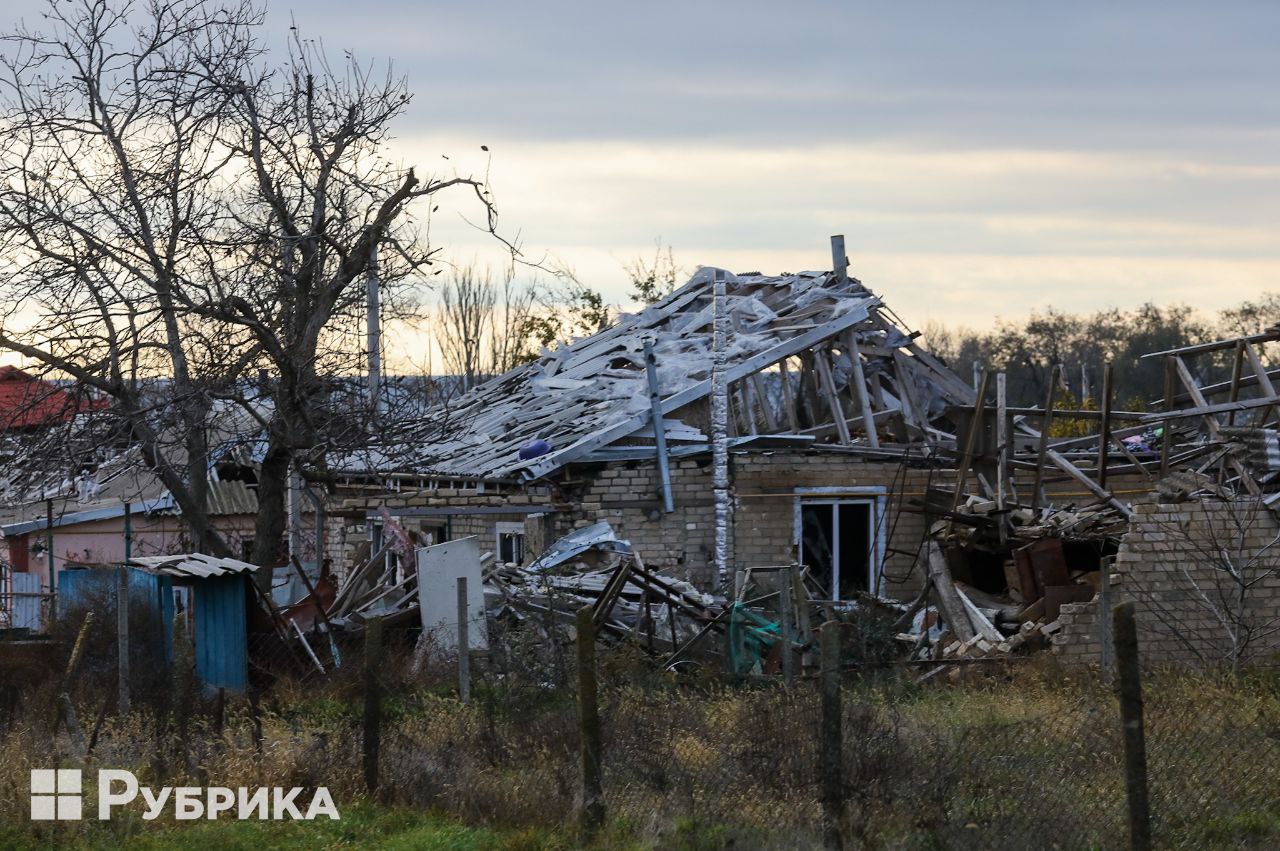
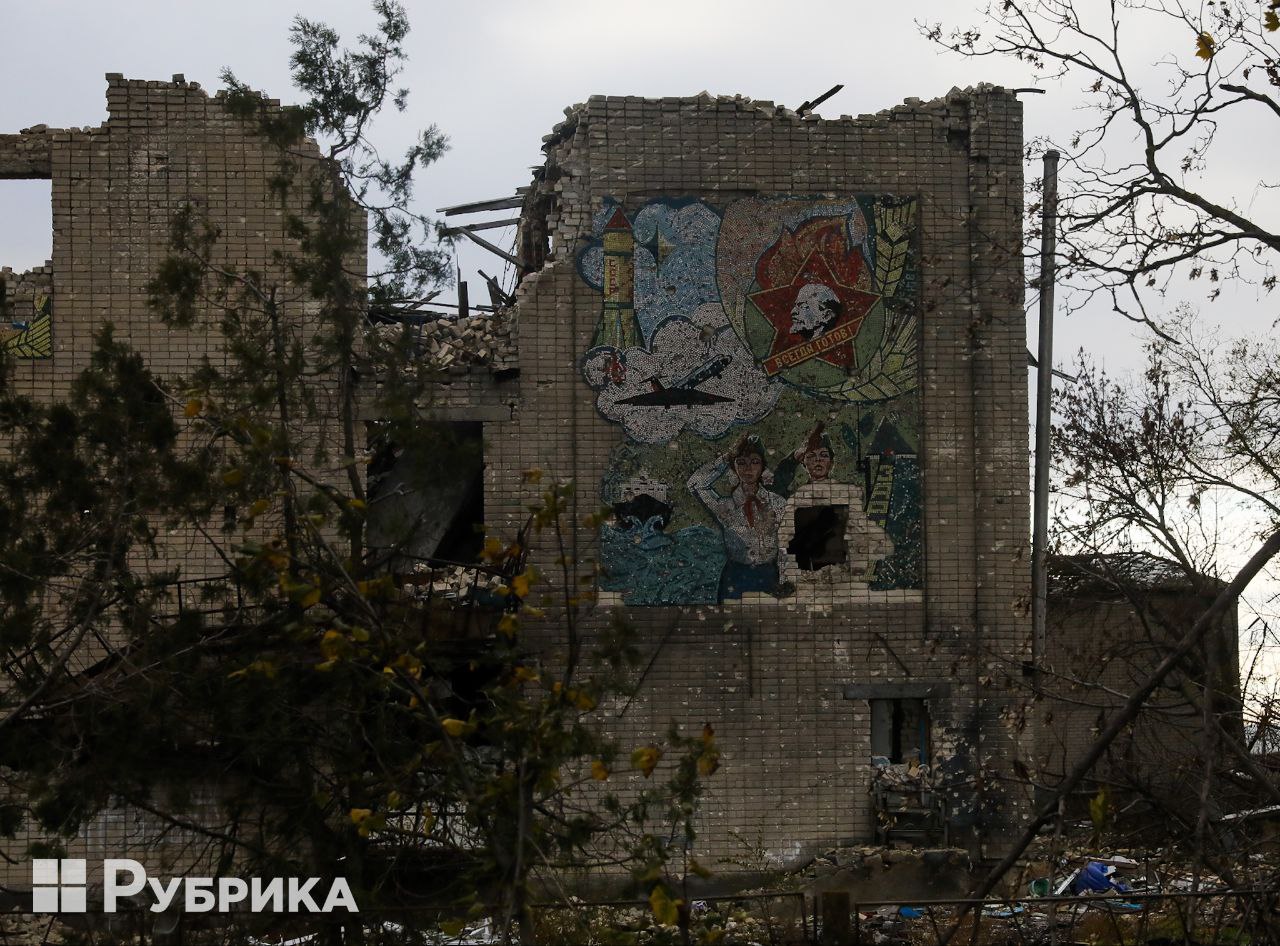
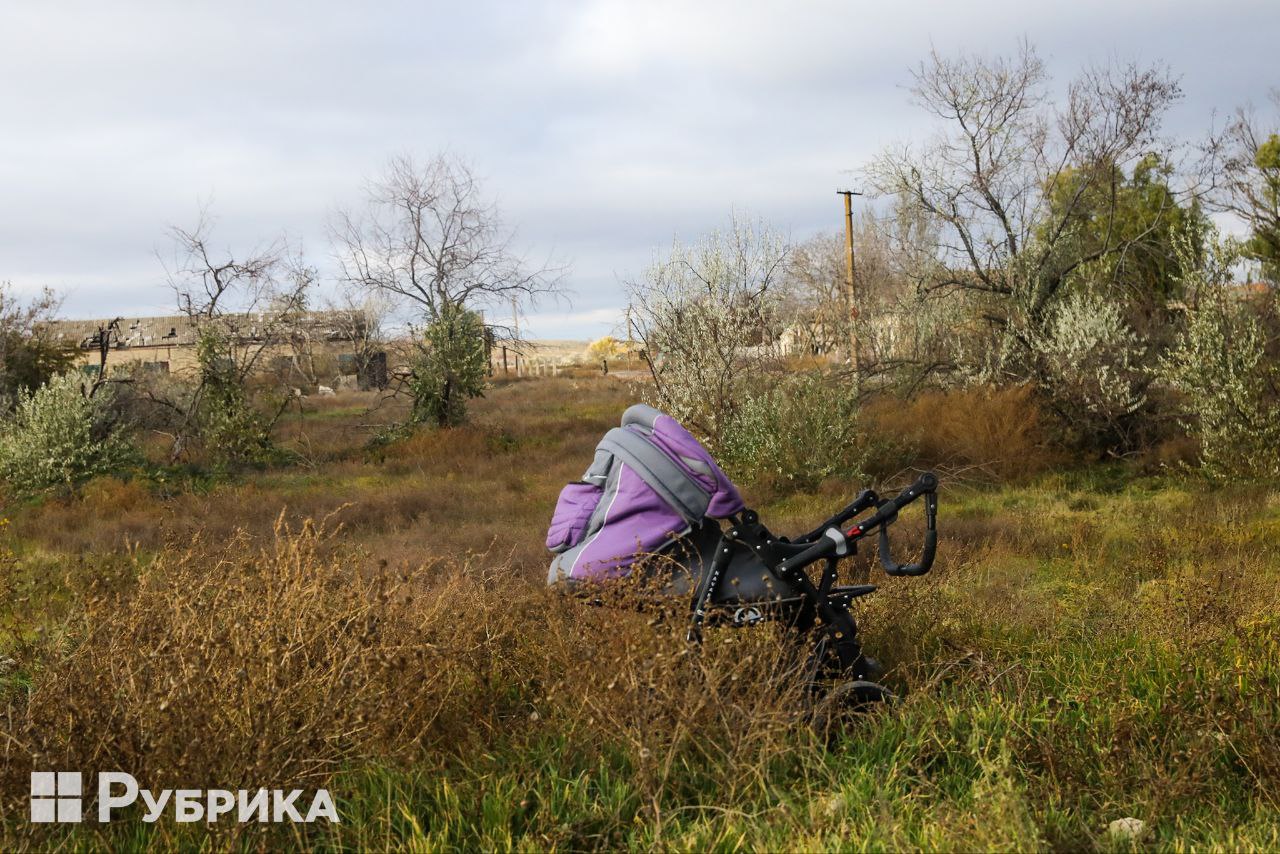
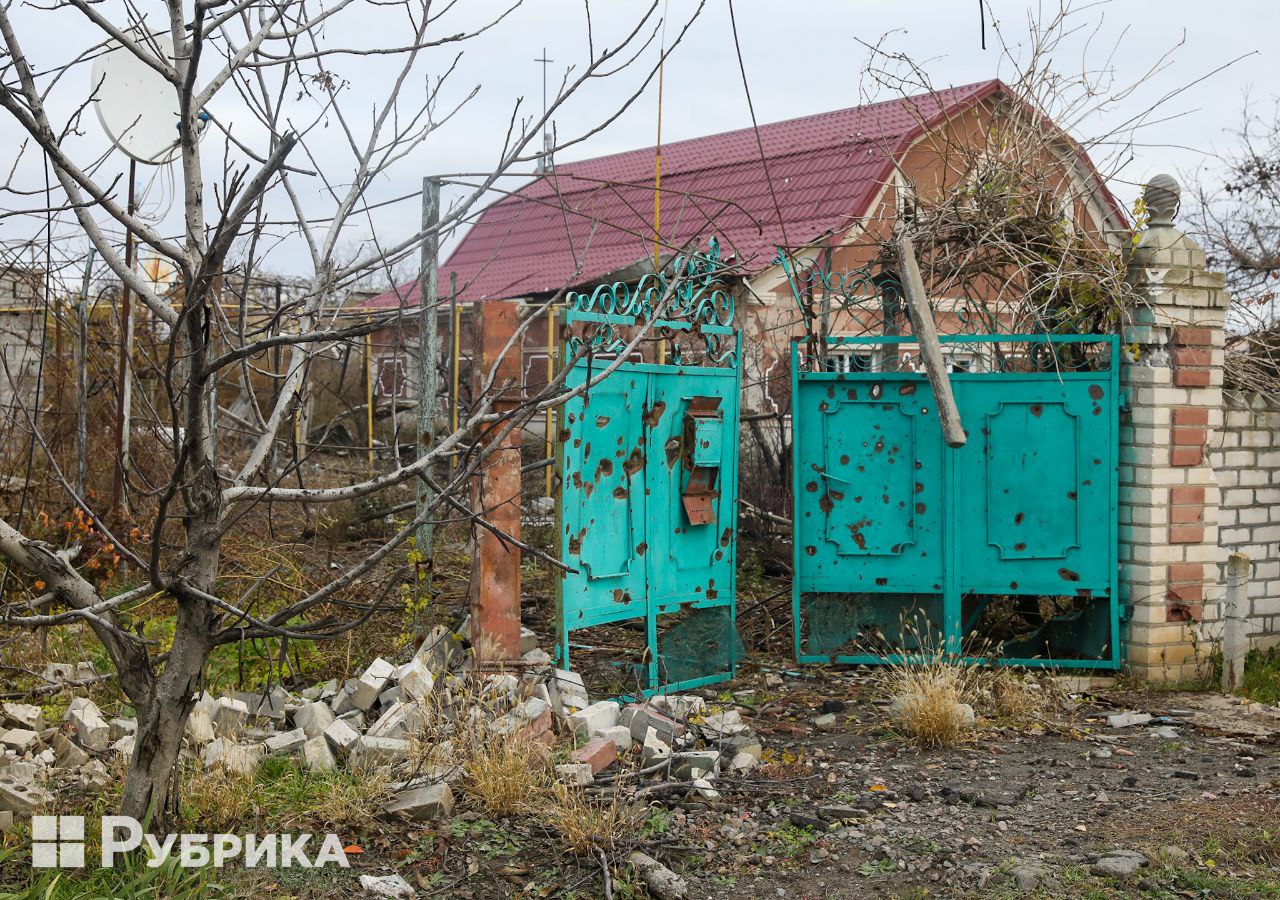
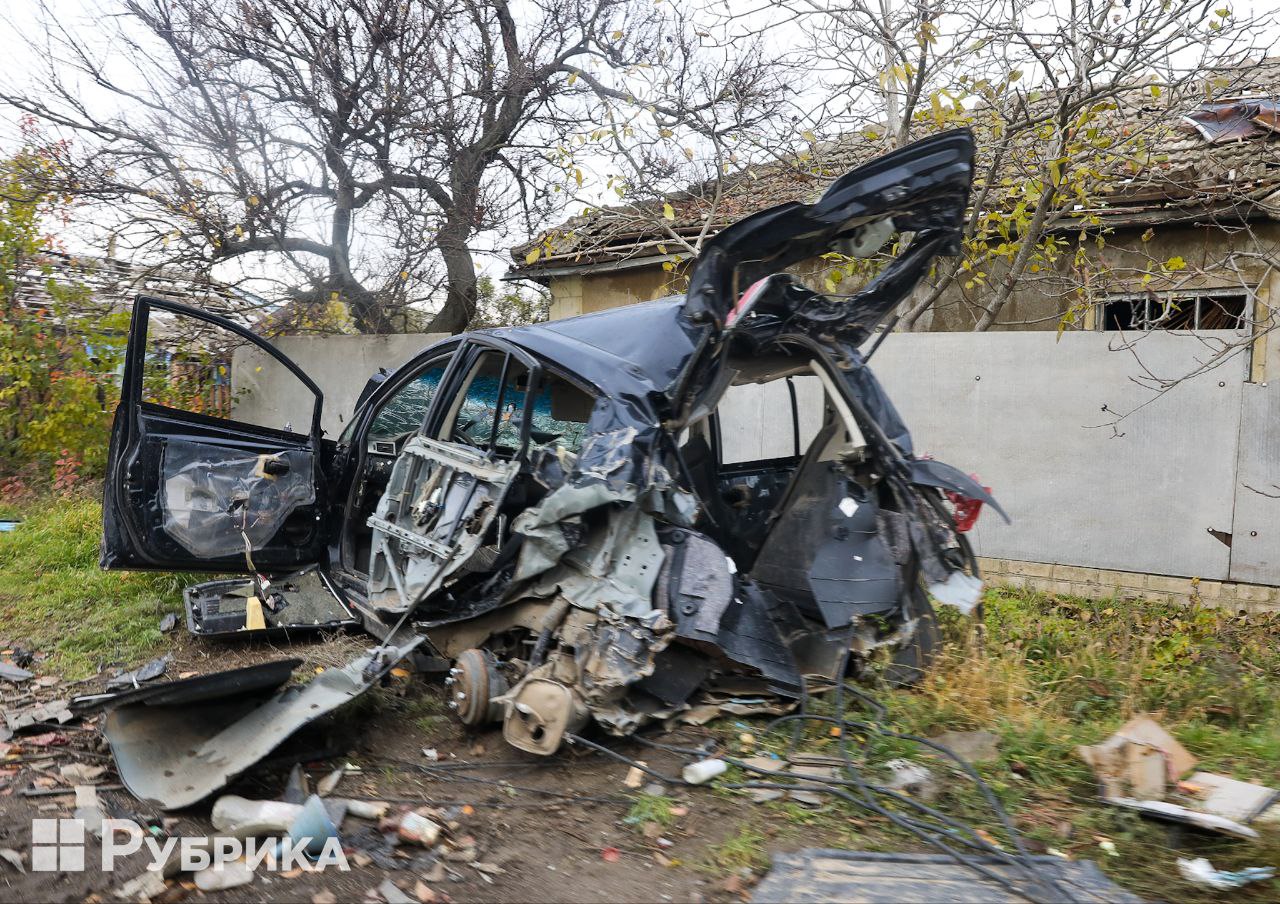
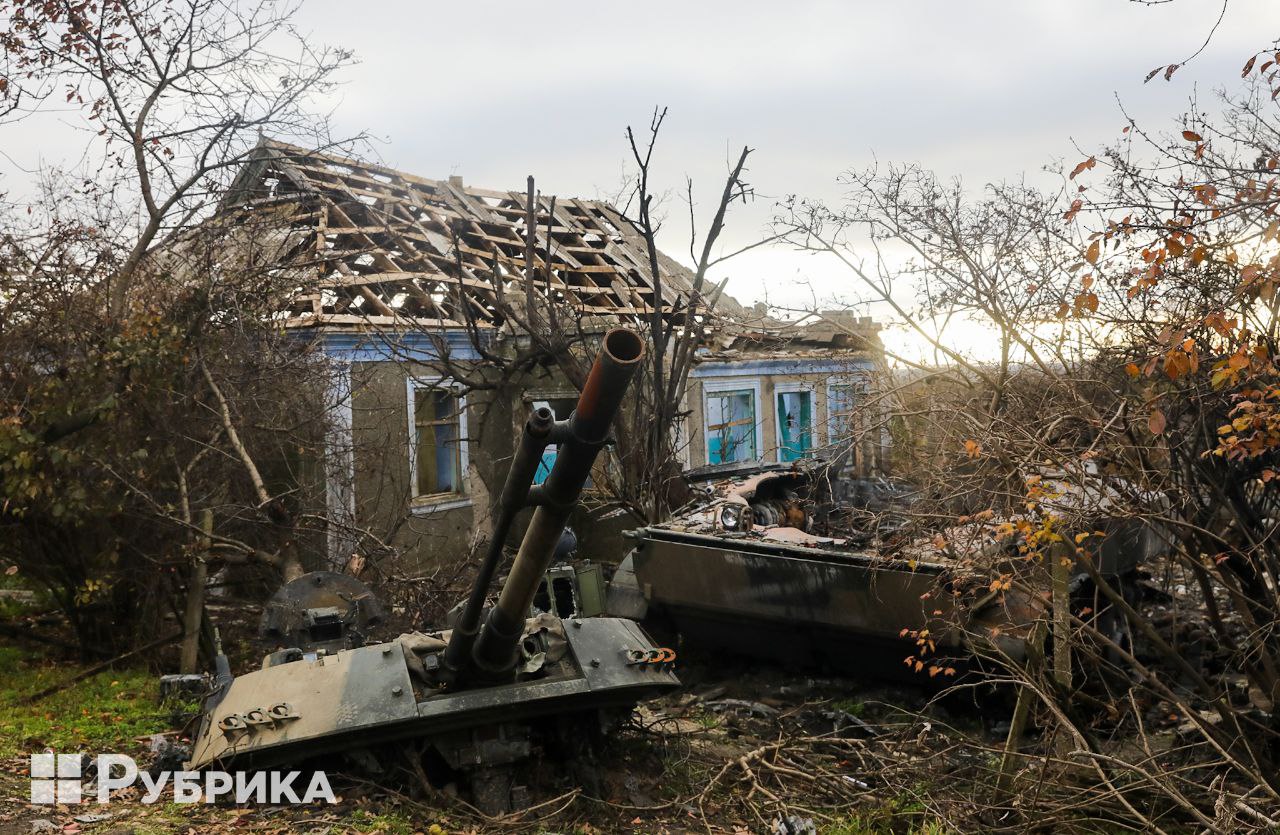
The contrast with reality is incredible. There are beautiful landscapes, the Dnieper Bay, and fields around. The weather is good, the sun is shining, and it seems that everything is fine. But the picture of the destroyed village is still before our eyes. Rubryka has seen a lot of destruction in recent months. But it is impossible to get used to complete destruction.
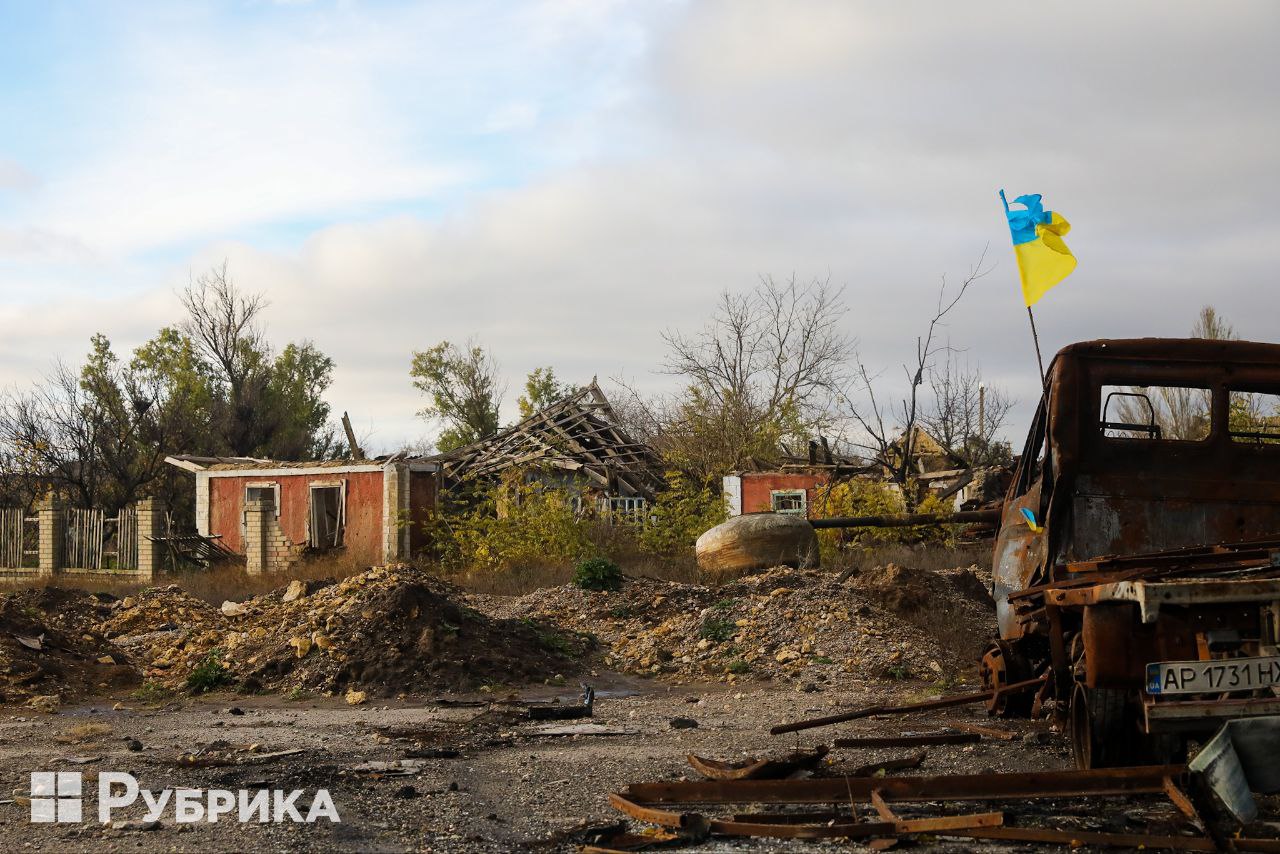
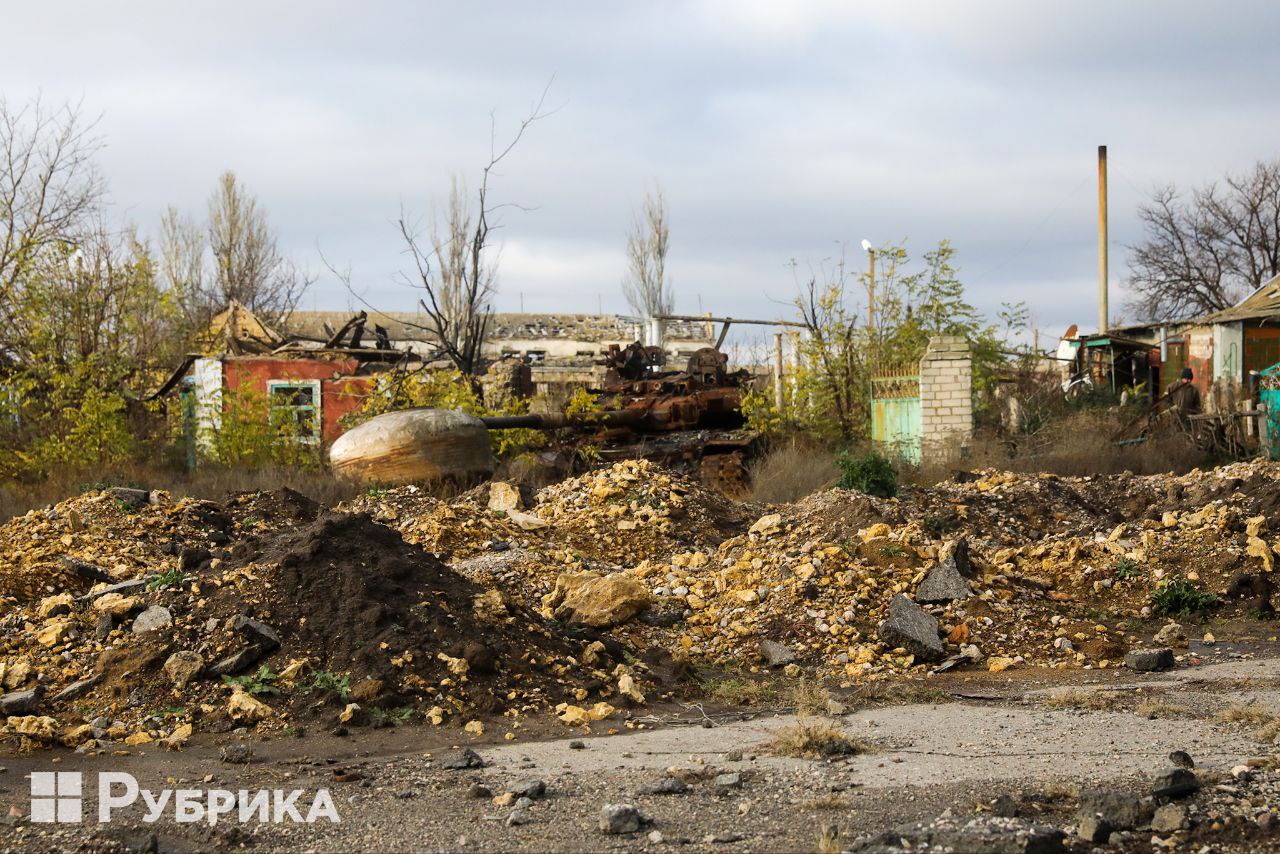
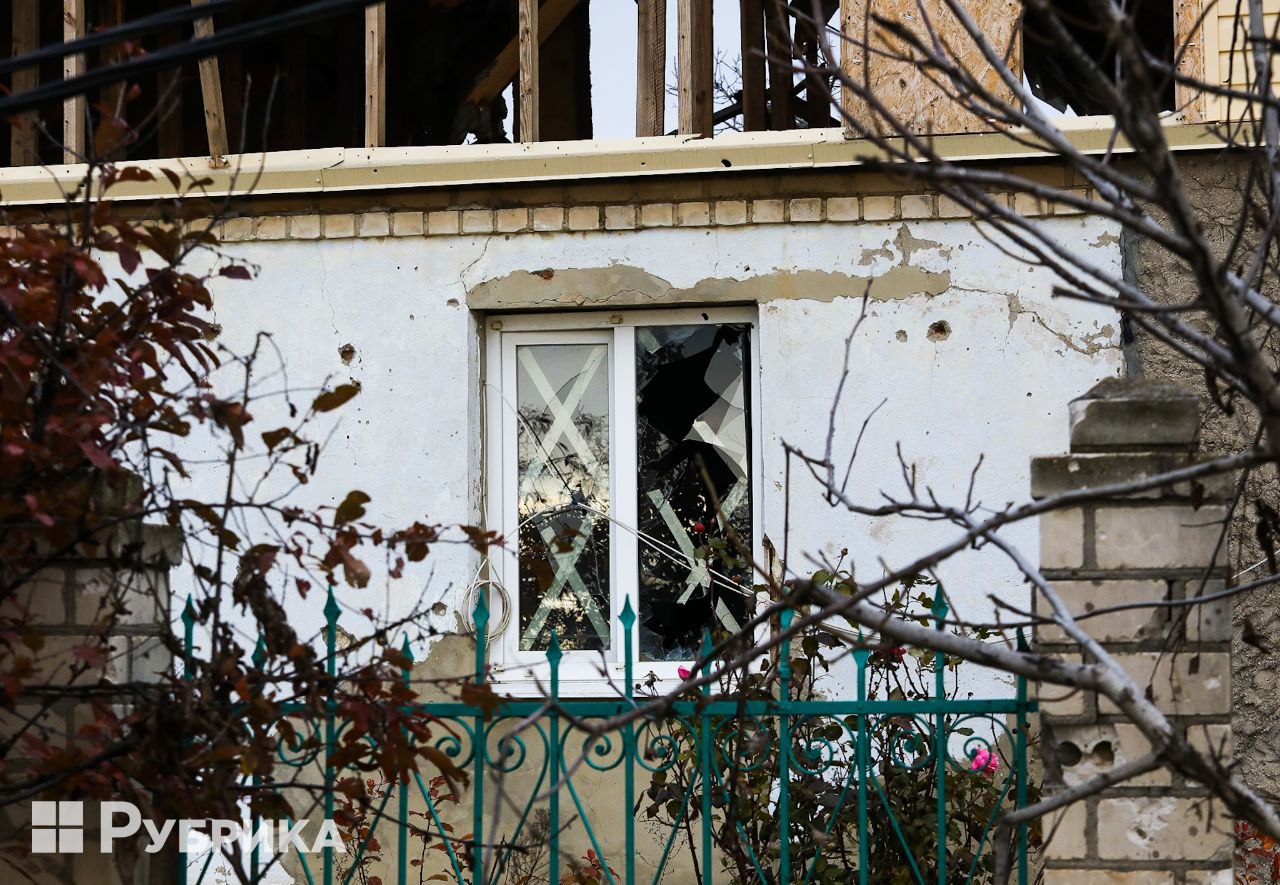
Along the way, we witness shelling ourselves. Cluster shells land 300-400 meters from us. The sun still shines. The fields stretch further south.


